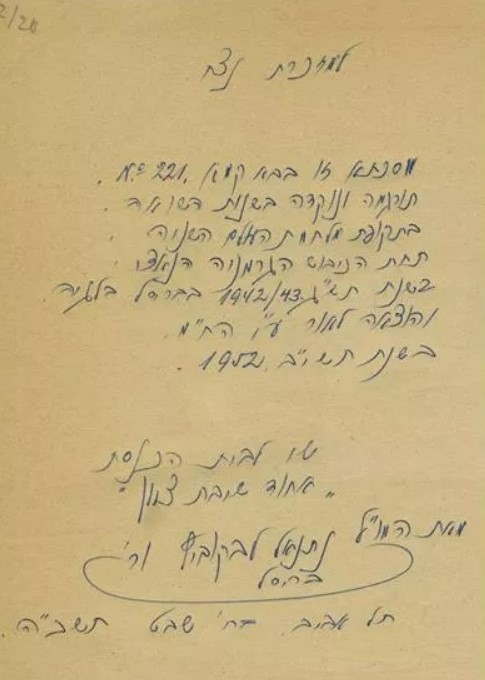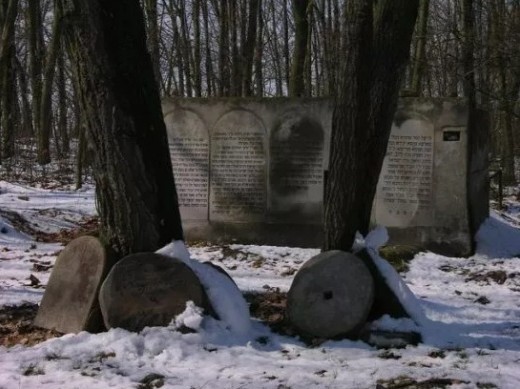
Kotzk – A Burning Flame and a Destroyed Town
By: Yaakov Rosenfeld On the memorial day for the Kotzker Rebbe, the miraculous figure whose inspiration has built thousands of worlds and whose light has been followed by hundreds of thousands of chassidim and men of action whose essence is truth and faith, I returned to the ancient Jewish town – one of the first towns in Poland, and observed its past and present. I saw old photos courtesy of the municipality and the Polish History Institute, I researched its existence throughout history and to the present day, and in the dead of night I sat down to write the reflections of my heart. ... Read more
The Rebbe Who Gave His Life to Save a Jewish Woman
By: Yaakov Rosenfeld The American Yiddish daily press, which was very widely distributed about eighty years ago, constitutes an important historical document, and therefore, the treasures contained in the period's press and preserved in the Ganzach Kiddush Hashem archive serve as an inexhaustible source of invaluable information about the period and its events. Many of the articles were written by Holocaust survivors, eyewitnesses, or reliable writers/reporters who heard firsthand accounts and published them after hearing them. The articles in the newspaper "Der Tag Morgen Journal" (a merg... Read more
Leżajsk, Holy Ground
Travel impressions by Yaakov Rosenfeld, Ganzach Kiddush Hashem Part 1 A frozen and white town, enveloped in peace and quiet, with dark gray smoke rising from the old chimneys on its roofs. The smell of wood burning in the stoves mixes with the smell of various combustion products, which, together with the freezing, motionless cold, creates a feeling of a Polish winter familiar from old descriptions. Old, weathered houses, reddish-brown brick chimneys, lace curtains separating the windows of the low-rise houses of Leżajsk from the few passersby, shivering with cold, huddled together b... Read more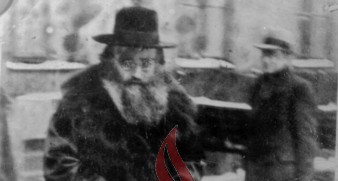
“And G-d Goes Before Them…”
The Piaseczna Rebbe's words on Parshat (weekly Torah portion) Beshalach, at Shaleshudis (the 3rd Shabbat meal) on Shabbat Shira (the Shabbat before the Tu B'Shvat holiday) 5700/1940, Warsaw Ghetto By: Yaakov Rosenfeld It was deep in the winter inside the ghetto, which had been closed for several months.Not only was the ghetto closed, but breathing was also constricted, stifling. The streets between Nowolipki and Mila had shortened, as if the stone itself had retreated from the people. Old snow had been crushed into dark mud, and wooden carts creaked as they carried what could no longer ... Read more
Here Lived A Jew
In memory of the tzaddik (righteous man), Rabbi Moshe Leib of Sassov, upon the anniversary of his passing on the 4th of Shvat By: Yaakov Rosenfeld Translation of gravestone: Here lies, 4th of Shevat 5567 (1807), the great Rabbi, the sharp and knowledgeable, the holy light, holiness is said about him, who spent nights as days in the service of G-d and His Torah and the fulfillment of His commandments, the famous, our teacher Rabbi Moshe Yehuda Leib z"l. The son of the great Rabbi, our teacher Rabbi Yaakov of Brody. May his soul be bound in the bonds of life. In the photo is the th... Read more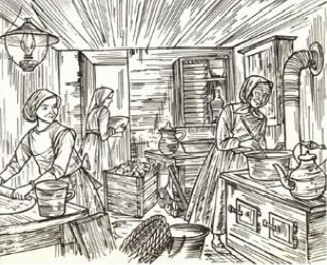
Jewish Morals in the Nazi Jungle
Written and edited by Faigy Schiff, based on testimonies held by Ganzach Kiddush Hashem In the jungle, animals prey on each other to survive. But Jews were blessed to live in the image of the Creator. Despite the terrible conditions and impossible situations. Women in the kitchen in a ghetto, drawing …Most Jews were refined to high levels of morality, virtue, mercy, and sacrifice for the sake of others. The "human animals" of the occupation regime stood amazed and surprised at the devotion, love, and compassion that not only fathers and mothers showed to their family members, but... Read more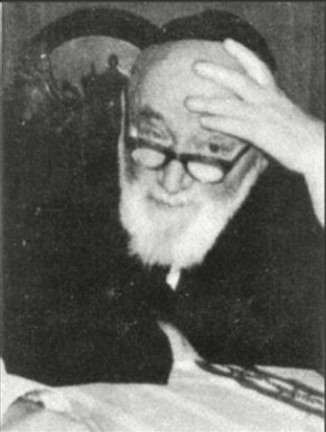
The Seridei Esh Rabbi
Commemorating his yahrzeit (anniversary of passing) on the 4th of Shvat - which falls this year on Jan. 22nd, 2026 In recent years, Ganzach Kiddush Hashem archive staff have taken it upon themselves to sort and catalog two very large collections that include tens of thousands of documents and photos about Rabbi Weinberg z"l and his activities. On the website, you can find many of these documents that teach about the rabbi's great, multifaceted personality and his activities for the community. The Life and Deeds of the Rabbi Rabbi Yechiel Yaakov Weinberg was born in 5645/1885 in the t... Read more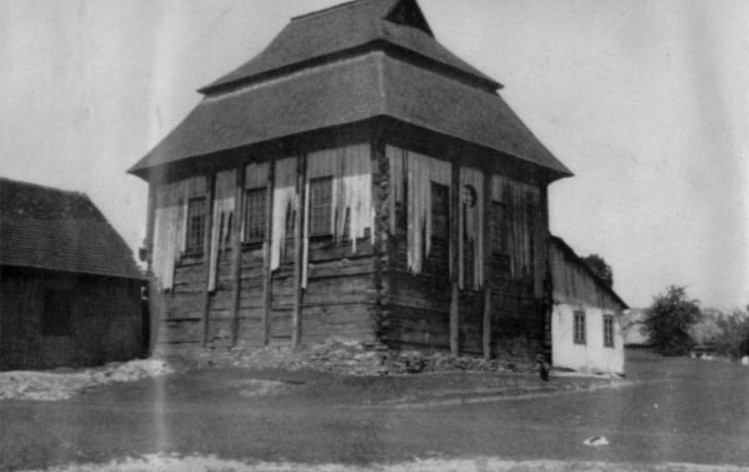
Sochaczew and Its Righteous
100 Years Since the Passing of the Shem MiShmuel Rabbi By: Yaakov Rosenfeld The graves of the Avnei Nezer and Shem MiShmuel rabbis, Sochaczew On the 24th of Tevet 5786 (corresponding to Jan. 13th, 2026), the 100th anniversary of the passing of the genius holy Rabbi Shmuel Bornstein of Sochaczew, author of the Shem MiShmuel, and one of the righteous men of his generation, the son of the Avnei Nezer and the grandson of the Kotzer Rebbe, we commemorate with pain and brokenness, the destruction of Sochaczew, a major Jewish community. On the 20th of Tevet 5701 (January 19th, 1941), th... Read more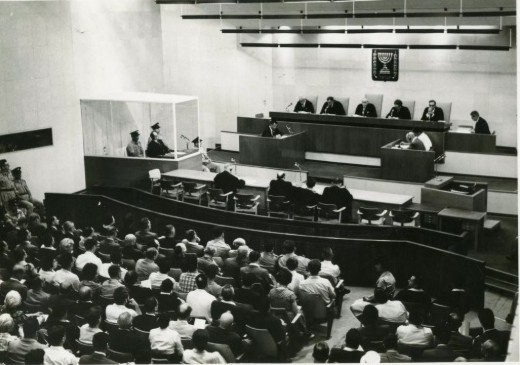
Eighty Years Ago Today: Eichmann’s Escape from the American Army Camp
On Saturday night, when news broke of the capture of the Venezuelan president by US special forces in an airborne operation on enemy soil that was carefully planned and crowned with success; alongside the admiration for the sophistication and audacity of the army of the "leader of the free world", it was difficult for us, as those involved in researching and documenting the history of the Holocaust period, not to recall the stinging loss of that army, exactly eighty years earlier, in early January 1946 (Tevet 5706) in the fortified camp in southern Germany, when the greatest of the Nazis, the... Read more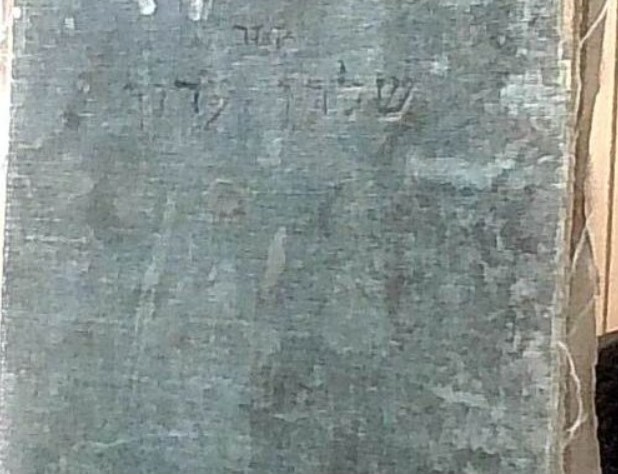
80 Years Since Studies Began in Lidingo
Hundreds of boys studied from the holy books of the Holocaust survivors By: Yaakov Rosenfeld In the fall of 5706 (1945), classes began at the Lidingo school. Eighty years have passed since then, and anyone who wants to gain some idea and understanding of the extent of the success of an educational institution under the most difficult conditions imaginable, thanks to the dedication and pure Jewish character traits of its administrators, should learn a little about this school; the educators who worked there and its students, orphaned Holocaust survivors from all over Europe, for whom Lid... Read more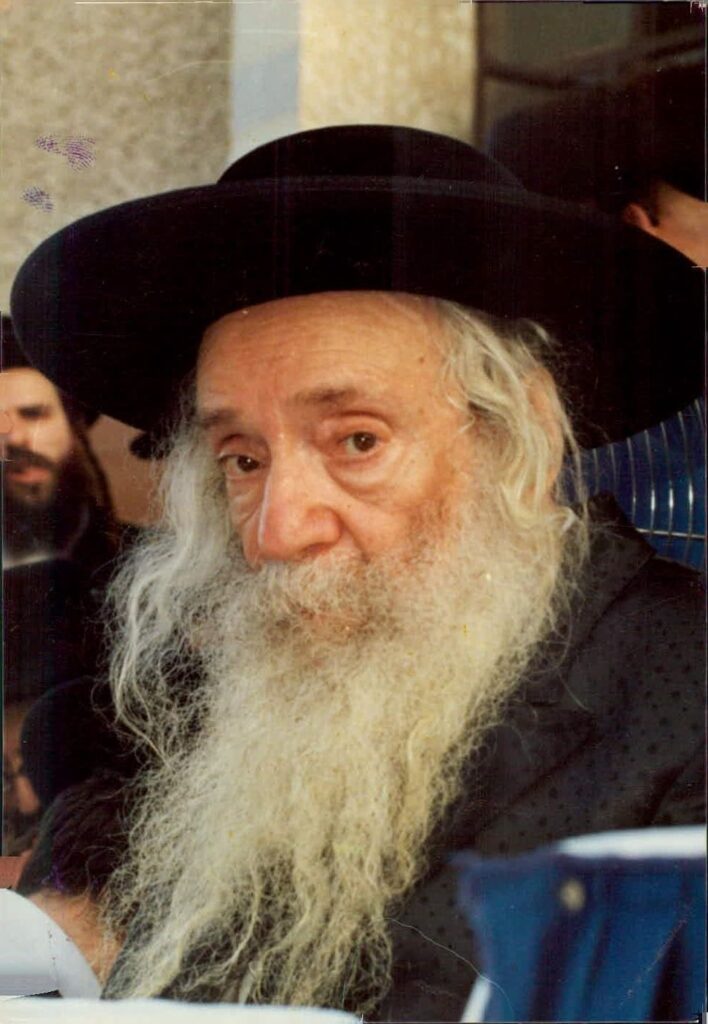
A Wooden Menorah in the Valley of Tears
On the 7th night of Chanukah, in the year 5744 (1983), in front of an audience of his chassidim and students, the Sanz-Klausenberger Rebbe z"l spoke words of praise and thanksgiving to G-d, and in between his words he gave a taste of his experiences there, in the camp, where he suffered, together with his Jewish brethren, the bitter burden of the Nazi oppressor, and drew strength from faith and observance of the commandments, precisely at that time, in the Valley of Tears. The Sanz-Klausenberger Rebbe, also known as the Shefa Chaim, next to the Chanukah candles Here are some of his ... Read more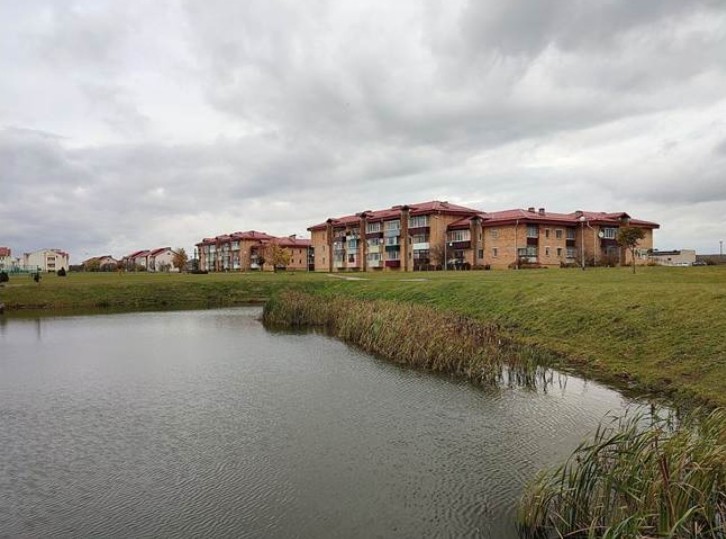
Vaslishok, A Town That Was
By: Yaakov Rosenfeld To see part 1 in the series, please click here. In the previous article, we brought an interesting news item from the newspapers of the time about a Christian tombstone thief who received his punishment, and about the great impression this incident left on the town of Vaslishok and its surroundings. The body of the newspaper article mentions the town rabbi to whom the thief's widow came to ask for a solution, but it does not say who the rabbi was in that episode, and in general, many were interested in the town and its history, a town that is almost unknown today... Read more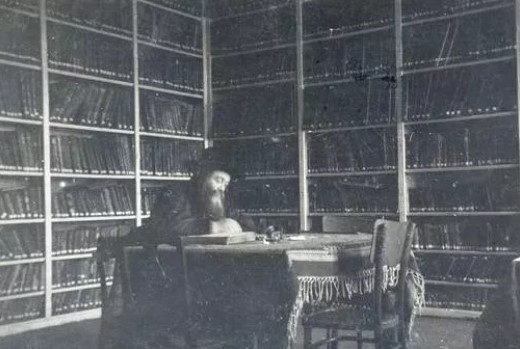
The 3rd Siyum HaShas in the Daf Yomi Framework, the 1st Following Liberation
Rabbi Meir Shapira z"l Eighty years ago, in the early winter of 5706 (the end of 1945), the Siyum HaShas (celebration marking the end of studying all of Gemara) in the daf yomi (learning a page a day) framework was held for the first time since the outbreak of the Holocaust. The celebrations were held with mixed emotions, as most of those who began the Shas as part of this cycle did not get to finish it. They were murdered in sanctification of the Name of G-d during the years of the destruction of European Jewry. The difficult feelings were well expressed by Rabbi Yitzchak Yedidya Fran... Read more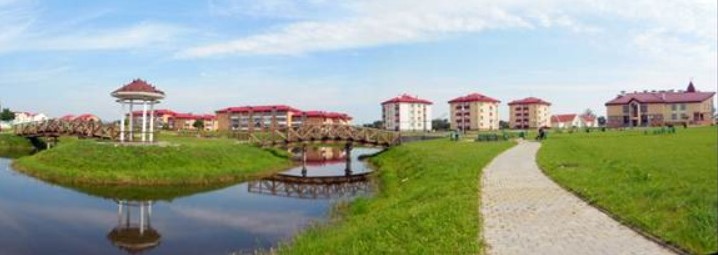
The Incident that Shook the Town 100 Years Ago
By: Yaakov Rosenfeld A hundred years ago, in the month of Kislev 5685 (Dec. 1924), an interesting news item was published in the popular Yiddish newspaper "Dos Yiddisheh Vort", published in Poland in the interwar period. Here is the article (translated from Yiddish to Hebrew by Yaakov Rosenfeld, and then from Hebrew to English by Ricki Prince) Subtitle: Christian steals tombstones from cemetery, then gets killed, and comes in a dream to his wife and children to mourn his sinful soul… The "Moment" newspaper of Grodno writes: "An Extraordinary Case" A faithful man tells us... Read more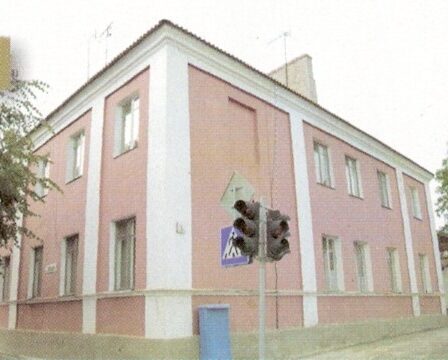
And He Said: Here I Am – Part 3
The third installment of our series about the Karliner Rebbe, Rabbi Avraham Elimelech Perlow z"l By: Yaakov Rosenfeld To read part 1, please click here. For part 2, click here. A Life of Self-Sacrifice In the previous chapter, we told about how the Rebbe remained in Russian-controlled Karlin. Under the watchful eyes of the NKVD agents, he continued his work, shining a light of joy and faith in the hearts of the Jewish People. His actions were a disgrace to the government officials, but he did not for a moment think of stopping. Leaving the Jews exposed to decrees without spiri... Read more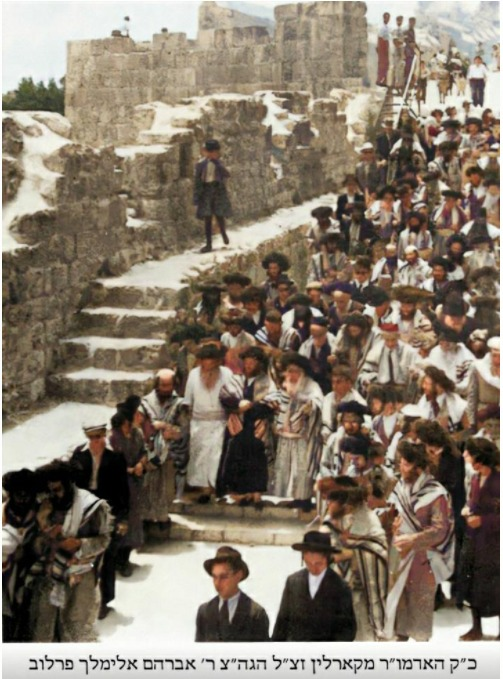
And He Said: Here I Am – Part 2
Part 2 of the series commemorating the Karliner Rebbe, Rabbi Avraham Elimelech Perlow z"l, may G-d avenge his blood. To read part 1 in the series, please click here. The Rebbe and his followers on the way to the Western Wall Before I continue with the description I have collected from various places and from the lips of veteran chassidim, I will present an interesting testimony, a newspaper clipping in which a Polish Jewish writer tells of his visit to the city of Pinsk in the interwar period, with an emphasis on his visit to the synagogue of the Karliner Rebbe. Below is the d... Read more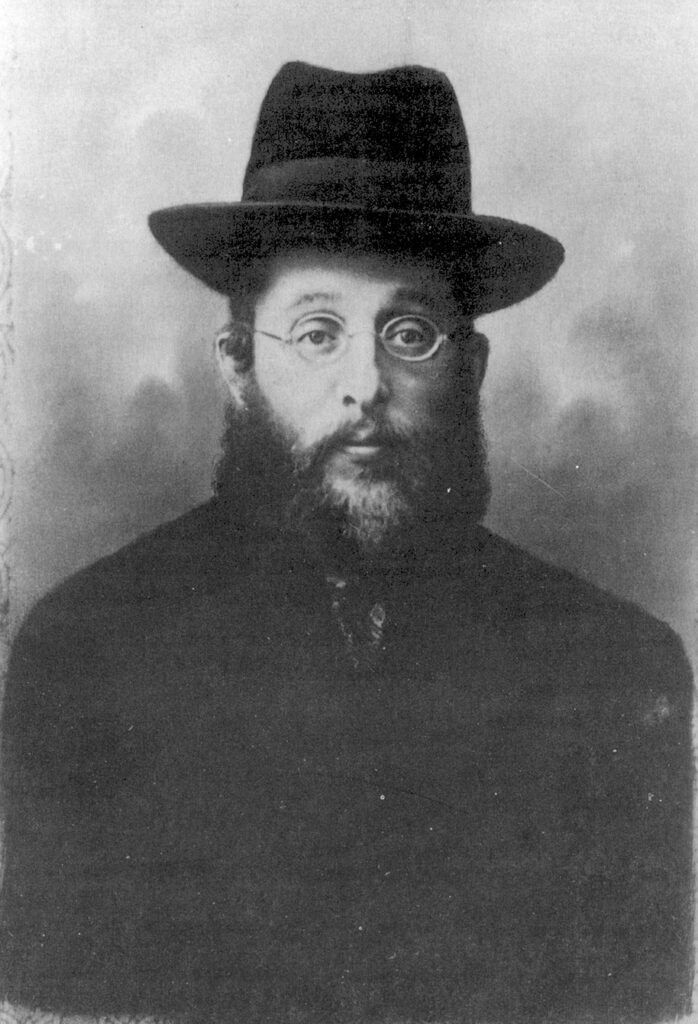
And He Said: Here I Am – Part 1
The final journey, filled with tears, of the holy Rebbe of Karlin, Rabbi Avraham Elimelech, may G-d avenge his blood, to the Land of Israel, on the eve of the war's outbreak. A terrible journey that left a bitter mark on hundreds of chassidim of the Old Yishuv (original Jewish immigrants to pre-State Israel in the modern era), who throughout their lives never forgot the tears, the cries, the farewell words and the dedication of a Jewish leader, who with saw everything with his holy eyes in advance, and could have saved himself, but preferred to be with the sheep of his flock in the "years ... Read more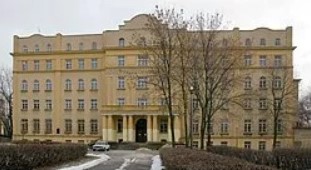
How Was the Chachmei Lublin Yeshiva Built?
Interesting testimony from Rabbi Meir Shapira z"l's secretary A fascinating document from Ganzach Kiddush Hashem's archive - Presented by Yaakov Rosenfeld Rabbi Alter Meir z"l, a native of the city of Sanok in Poland, and an ardent Czortkow chassid, served as secretary to the genius Rabbi Meir Shapira of Lublin z"l, during his years as rabbi of the city of Sanok. Due to the draft decree in Poland, Rabbi Alter Meir immigrated to the Land of Israel in 5692 (1931-2) and brought with him the aromas of Jewish-chassidic Poland to Tel Aviv, where he lived and wrote memoirs and original ... Read more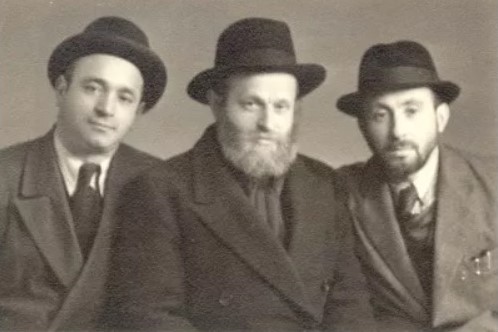
The Genius Rabbi Yoel Halpern Z”L
One of the rabbis of Bergen-Belsen and a great leader of the survivors - on the anniversary of his passing - 28th of Elul Two days before Rosh Hashana of 5743 (1982), a great and revered rabbi, one of the greatest leaders of the Jewish People among the Holocaust survivors, passed away. He lost his entire family during the Holocaust and was never able to rebuild a family. On the 28th of Elul, the genius Rabbi Yoel Halpern, ascended to the Yeshiva on High (Heaven) where he surely met with his wife, Rebbetzin Dina, and his three children, may G-d avenge their blood - who were brutally murdere... Read more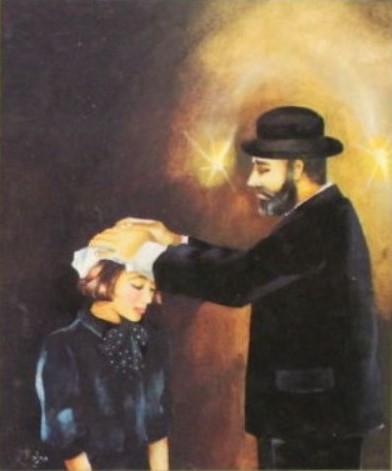
A Father’s Blessing
A story for the parsha (weekly Torah reading) by Yaakov Rosenfeld On Shabbat eve, the week of Parshat (the weekly Torah reading) Toldot, when we read and learn about our forefather Yitzchak blessing his son Yaakov from his deathbed, I would like to tell you about a father's blessing to his daughter, eighty-five years ago, in the closed Lodz Ghetto, stricken with bereavement and grief. Leah Wroclawski is the girl's name, and her testimony is written with all her heart in a small book she wrote nearly fifty years ago, called "Tikkun Chatzot Sheli." (Translates as "My Tikkun Chatzot" - Tik... Read more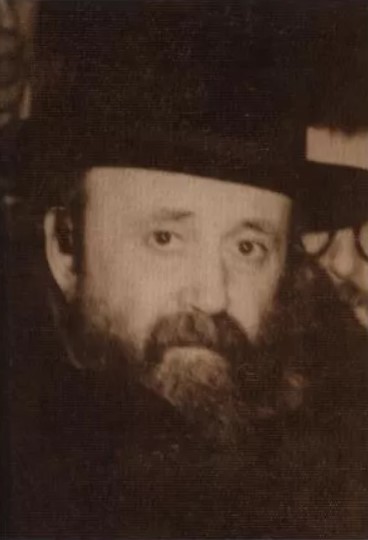
The Circumcision that Took Place Close to Death – Cheshvan 3, 5701 (1940)
By: Yaakov Rosenfeld, Ganzach Kiddush Hashem The holy Skverer Rebbe, Rabbi Yaakov Yosef Twersky z"l The following description, if it were a legend, would be one of the children's stories we grew up with and with which we put our little ones to bed with, but it is indeed a true story whose main hero is one of the greatest Rebbes and leaders of the generation, whose light has guided millions of Jews, and it took place exactly eighty-five years ago. 5701 (1940), in the fall, the city of Iasi in Romania. The days of Shemini Atzeret and Simchat Torah, which marked the end of the H... Read more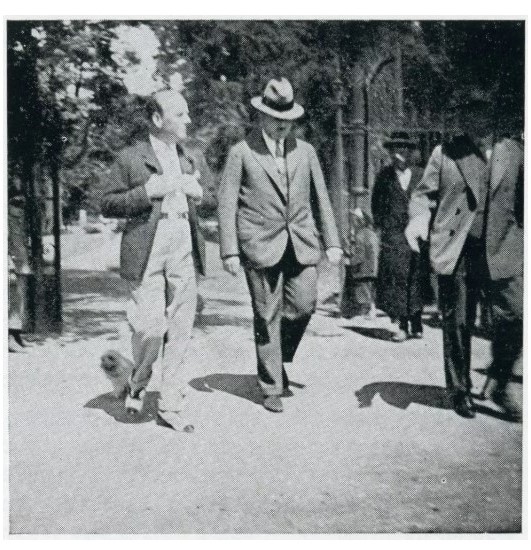
Count Potocki and the Jews of Lancut
Count Potocki's castle in Lancut Jews lived in Lancut for four hundred years. According to the records of the Polin Museum, Rebbe Elimelech of Lezhansk lived in Lancut for about two years after the end of his (self-imposed) exile, and from there he moved to Lezhansk with his students. It also appears there that in 5546 (1785-6), Rebbe Elimelech's last year of life, during the Austrian rule over the region, the Lezhansk community submitted a request to the authorities for the allocation of land for the establishment of a Jewish settlement of 70 families in the vicinity of Lancut. The in... Read more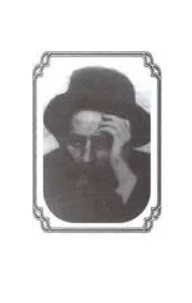
First Fruits: Rabbi Avraham Weinberg
The wonderous genius, Rabbi Avraham Weinberg - may G-d avenge his blood - a member of the Board of Rabbis of Warsaw, head of the Beit Avraham Yeshiva, and author of the book "Reishit Bikurim" (First Fruits) 83 years since his death in sanctification of the Name of G-d. Elul 20, 5702 - Elul 20, 5785 (Sept. 2, 1942 - Sept. 13, 2025) By: Yaakov Rosenfeld A Holy Memory On the 20th of Elul, the holy genius, Rabbi Avraham Weinberg z"l, was shot and killed along with his wife and son. Eighty-three years have passed since that bitter day, and we at Ganzach Kiddush Hashem remember h... Read more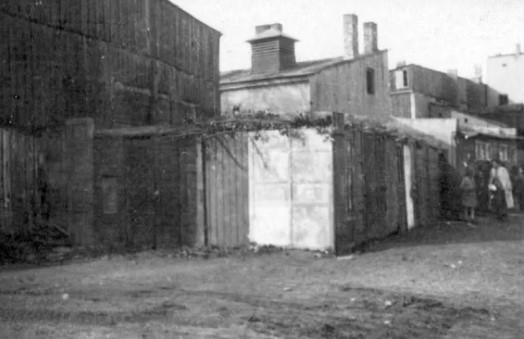
A Cry of Longing, Not of Despair!
By: Yaakov Rosenfeld The roads of the city were full. On Rosh Hashana, the holy courtyards were filled with people. During the Days of Awe (the Rosh Hashana and Yom Kippur period), anyone who walked around the centre of Jerusalem could not contain their shouts of admiration. Thank G-d, the streets of the city were filled with tens of thousands of chassidim and influential men, their faces shining like the brightness of the sky: they were privileged to ascend, to see, and to be seen. One cannot even count the groups of chassidim who have gathered at the pure tables, there is no one to... Read more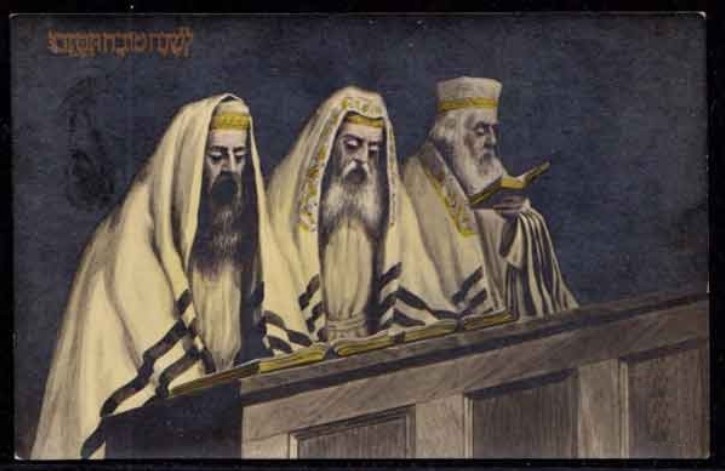
Yom Kippur for Jewish Soldiers Captured by the Nazis – And Other Yom Kippur Stories
A column published by a Holocaust survivor, a former officer in the Polish army, on the eve of Yom Kippur, 5706 (1945), eighty years ago The day was approaching evening and the azure sky of Tel Aviv was slowly turning into a dark blue veil, as I left my house to pray my first "Kol Nidrei" prayer on the soil of the Land of Israel. Not in my imagination, not beyond the days and beyond the dark mountains of Europe, did I foresee this evening - of which the remnants of destroyed European Jewry are now dreaming; no. With my own eyes I see multitudes of my brothers, flocking in their youth a... Read more
The Storms of the Time through the Eyes of the Press
Elul 22, 5707 - 80 years ago By: Yaakov Rosenfeld, Ganzach Kiddush Hashem On the eve of Rosh Hashanah 5706 (1945), exactly eighty years ago, the newspaper editors did not have to be particularly creative to find something to spread on the front pages and in the news columns. It was a new era, and every day brought news. These were the days of the end of the war, the days of Japan's surrender and the drawing of the borders of a scorched and bloody Europe. The great nations were hurrying to unite in order to prevent such atrocities in the future, and the Jewish People were busy searchi... Read more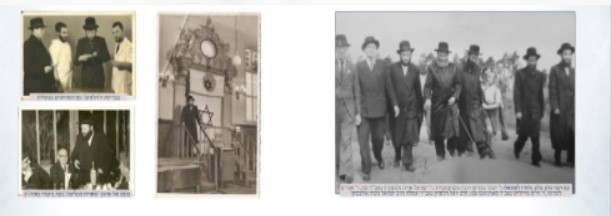
The Rabbi of Celle and Rabbi Moshe Prager’s Style of “Revenge”
By: Yaakov Rosenfeld During a recent lecture I gave at the Bobov Yeshiva in Bat Yam, I spoke about the Jewish People's trait of mercy as "merciful ones sons of merciful ones," and the heartbroken Holocaust survivors who had not lost their humanity, and despite the command of revenge burning in their hearts, they never thought of acting as their tormentors and captors had done, even when such opportunities arose before them. We were then in the week of the parsha (weekly Torah portion) of "Re'eh," and I spoke about the "gift of mercy" that we received from G-d. As a reference, I cited th... Read more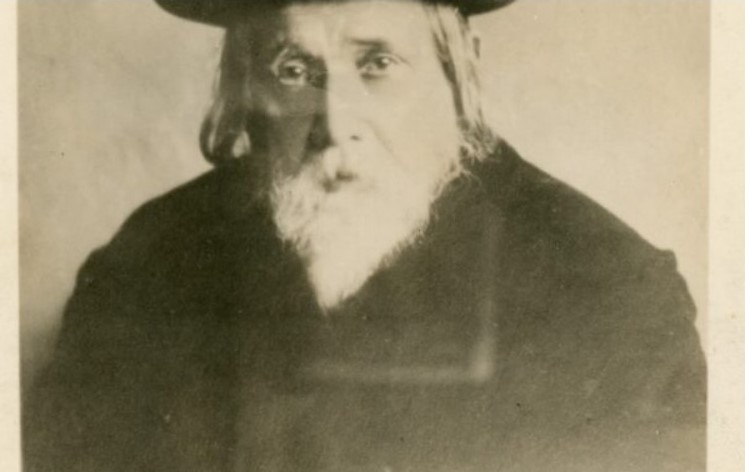
The Revered Genius Who Predicted the Future
Rabbi Meyer Simchah of Dvinsk - 99 Years Since His Passing By: Yaakov Rosenfeld The righteous and genius man who never got to have joy in his life, was blessed and his lips trembled in the grave, as it is said in the Talmud about those who recite Torah in his name, and today, in the centennial year since his passing, it is difficult to find a Torah community in the world that has not benefited from the Torah thoughts of Rabbi Meyer Simchah of Dvinsk, author of "Or Simchah" and "Meshech Chochma". The last photo of Rabbi Meyer Simchah of Dvinsk He was a genius whose name was kno... Read more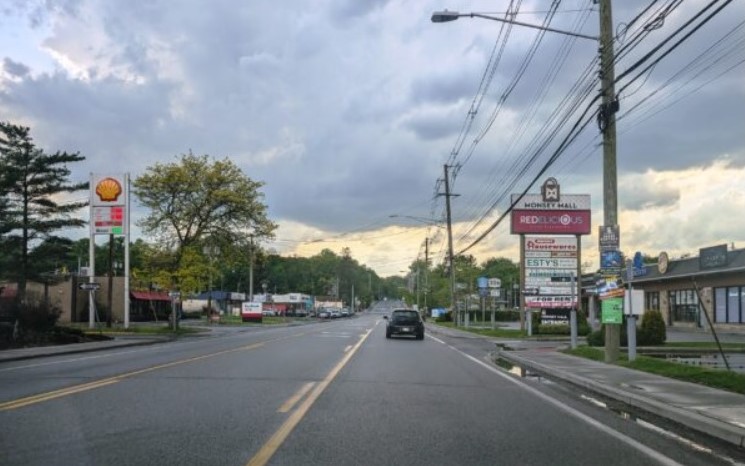
Pages of Love
A Book of Song of Songs was discovered 83 years after it was written under the eyes of the Nazi oppressors. By: Yaakov Rosenfeld, Ganzach Kiddush Hashem Chaim Avraham Fried, a soldier in the Hungarian army, was imprisoned in a German military prison after the British succeeded in carrying out a daring and deadly act of sabotage in the ranks of the German army. The Germans were unable to discover the identity of the perpetrator of the act of sabotage, and therefore launched disproportionate acts of revenge against anyone who fell into their hands. Jews visit relatives in priso... Read more
A Memorial to the Victims of Kelme
By: Yaakov Rosenfeld On the anniversary of the annihilation of the community of Kelme and the students of the "Talmud Torah" (as the well-known Kelme Yeshiva was called), we raise a memorial to the special individuals among the wonderful characters of Kelme, who sanctified the Name of Heaven there in their lives and deaths, and there is no comparison to the strength of their souls and fortitude. The victims from Kelme were driven into the killing pits on the 5th of Av, 5701 (July 29th, 1941), and almost nothing remained of the community. The yeshiva was then headed by the genius Rabb... Read more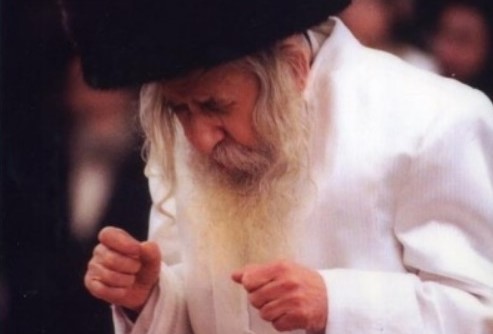
The Compassionate and Kind Rebbe of the Survivors
The Tosh Rebbe, Meshulam Feish Lowy z"l, a decade since his passing - Av 27, 5775/Aug. 12, 2015 By: Yaakov Rosenfeld, Ganzach Kiddush Hashem The Tosh Rebbe, who passed away ten years ago, was a Holocaust survivor. All his life, he bore the pain of losing his homeland and the holy communities that filled Hungary, the land of his birth. His life story is essentially the story of the Jewish People – a people of survivors that rose and shook off the ashes. The Rebbe single-handedly established a beautiful and magnificent community centered in Canada, with branches scattered throughout th... Read more
“Over These Do I Weep” (Lamentations 1:16)
Av 5, 5785 (July 30, 2025) By: Yaakov Rosenfeld This is the testimony of a Jewish boy, alone in his world. A memory as sharp as a razor and as bitter as wormwood. Michael was the man's name, and this memory did not leave him until his last day. And why did I decide to present this testimony now? For two reasons. We are now in the period of the Three Weeks (between the fast days of Shiva Asar B'Tammuz and Tisha B'Av), and nothing reflects the destruction of the Jewish People and the Temple more than a story like this. A Jewish home is a temple, the tender children are the cherubim and... Read more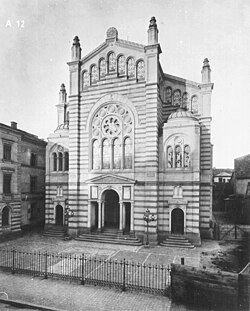
In Those Days On This Date – Part 2
Chapters of history, interwoven into each other, in 6 fascinating segments Tammuz 5785 (2025) By: Yaakov Rosenfeld, Ganzach Kiddush Hashem Rabbi Shmuel Strauss, founder and builder of the Strauss Courtyard On a holy Shabbat night in the city of Karlsruhe, Rabbi Shmuel Strauss (great-grandson of the Baal Shem of Michelstadt, an extraordinary philanthropist - According to the testimony of his son-in-law Rabbi Yaakov Rosenheim, "he donated much more than a fifth of his fortune to charity") walked gracefully from the synagogue to his home, the light of Shabbat shining before him, and inne... Read more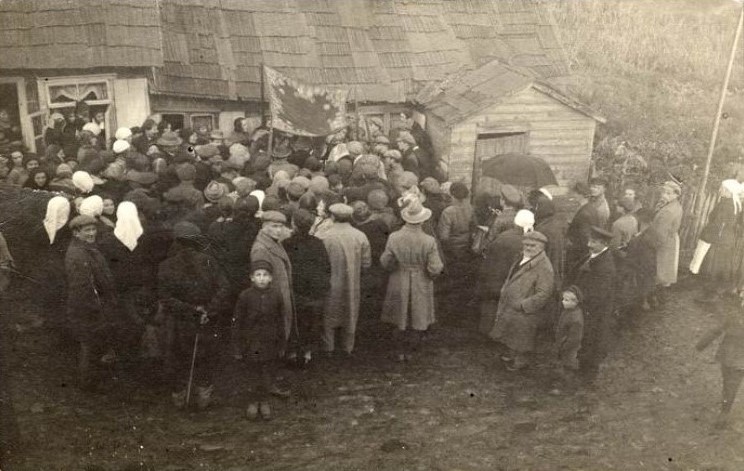
Weddings Today Versus Weddings Of Old
A discussion in the dead of night, to the sound of missiles and interceptions By: Yaakov Rosenfeld Yes, they did "business"! At the height of wedding season, the Jews of Israel were doomed to enter shelters and wait in fear for the sounds of missiles that can destroy and kill. The streets of the charedi (ultra-Orthodox) cities, which are normally bustling on these days of joy with the sounds of men, women, and children making their way to cheerful and sparkling weddings, and returning from them with sounds of joy and rejoicing, were enveloped in a terrifying silence. Parents and thei... Read more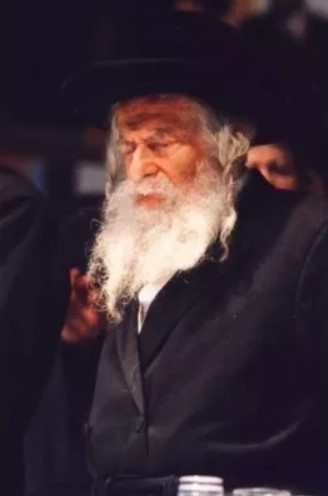
In Those Days On This Date
Chapters of history, interwoven into each other, in 6 fascinating segments Tammuz 5785 (2025) By: Yaakov Rosenfeld, Ganzach Kiddush Hashem 1. This week marks the 99th anniversary of the birth of the great and holy Gerrer Rebbe, Rabbi Pinchas Menachem Alter z"l. The birth of the tzaddik was on Tammuz 21, 5686 (June 9th, 1926), in Falenica, now one of the districts of Warsaw, on the right bank of the Vistula River, in the far southeastern corner of the city. Until 1951 it was a separate village, after which it became part of Warsaw. Before World War II, Falenica, located i... Read more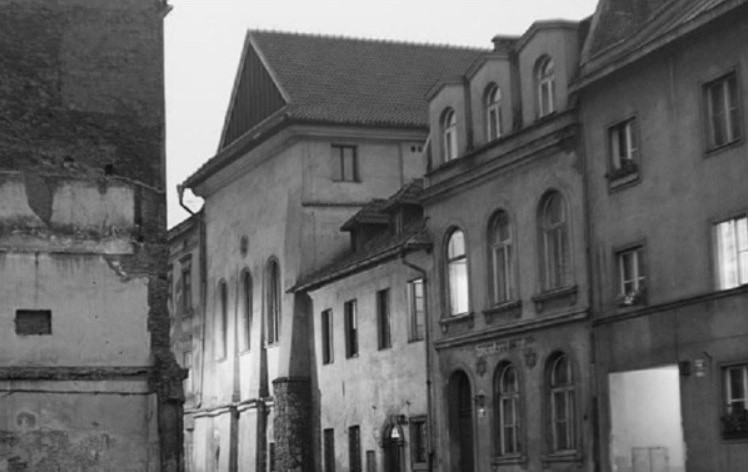
“Remember, G-d, the Soul of the Anonymous Woman Murdered by Evil Ones on the Holy Shabbat 80 Years Ago”
A memorial candle to the holy and pure soul of one Jewish woman, who survived the seven levels of hell, but was murdered postwar by an ignorant Polish mob, who were incited and enveloped in the lust for murder By: Yaakov Rosenfeld, Ganzach Kiddush Hashem It was in the days of liberation, and in the large city of Krakow, a group of refugees who survived the war and attempted to start a new life and rehabilitate themselves had already formed. In the summer of 5705 (1945), exactly eighty years ago, on the morning of a bright, summer Shabbat, a Polish woman was walking through the ma... Read more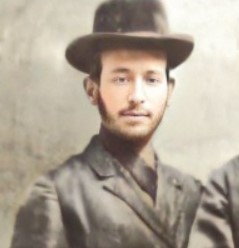
The Rabbi of Oshpitzin (Oswiecim)
A first impression of a city and its characters By: Yaakov Rosenfeld After the publication of the article (see here) about the great and righteous man of Komarno, Rabbi Baruch Safrin z"l, who was killed on Shavuot, we were inundated with many emotional responses, which led us to reexamine the history of this miraculous righteous man. On the one hand, we feel satisfaction from the very fact that we are elevating great figures from forgotten worlds, and on the other hand, we cannot rest on our laurels as long as there are so many names of great and righteous people who sanctified ... Read more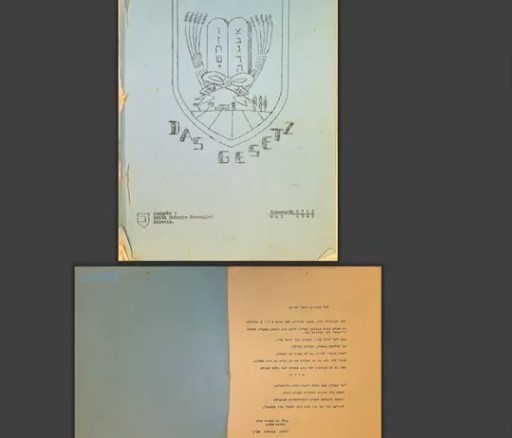
The Giving of the Torah in the Desert
A letter from somewhere in the African desert, in the midst of the war, written by a Jewish soldier who excitedly tells about the Torah scroll his unit received from the community in Alexandria, and about the precious parochet (Torah ark curtain), dedicated in memory of the 93 Bais Yaakov girls. Compiled by: Yaakov Rosenfeld The giving of the Torah in the desert... The Royal Air Force I am writing this letter to you from somewhere in the African desert. We are a Jewish unit of soldiers in the Air Force. Some time ago we celebrated the anniversary of our founding. The commander ... Read more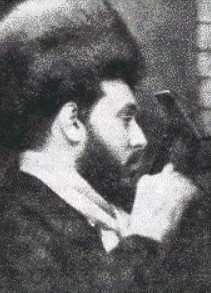
The Holy Rabbi who was Murdered in Sanctification of G-d’s Name on Shavuot
When the holy Rabbi Shalom Safrin of Komarno fell ill and was nearing death, he called his son Rabbi Baruch, who was then 24 years old, and entrusted him with the leadership. He told the chassidim: "I desire that my son Rabbi Baruch sit on my throne." Rabbi Shalom of Komarno was a holy man, continuing the holy lineage of the Komarno rebbes in Galicia, who were all holy men and giants in the Torah. The Komarno dynasty rebbes were great and and known for their wisdom in Kabbalah and the secrets of the Torah. Rabbi Shalom, son-in-law of the great Rabbi Yisrael of Stolin, known as "Der ... Read more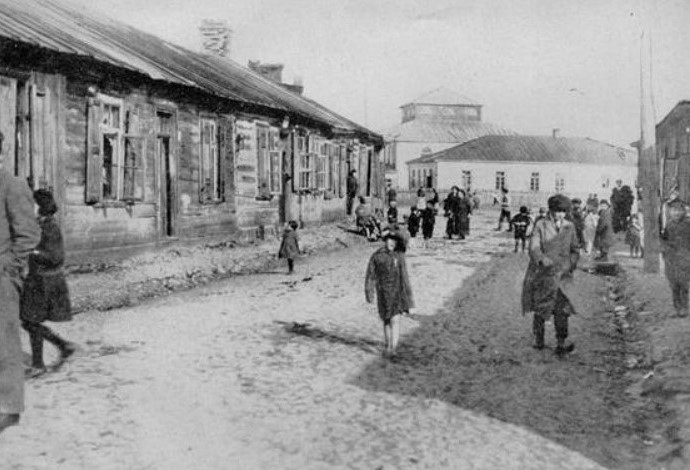
Łuków – A Memorial Candle to a Jewish Town that Was and Is No More
By: Yaakov Rosenfeld Almost none of us have heard of the city of Łuków (pronounced in Polish as Wukov, in Yiddish as Lukov). A magical, Jewish town where Jews lived for eight hundred years and worshipped their Creator with love and innocence, and then descended into the abyss. Łuków was a chassidic city, pious and full of Torah and fear of G-d, and on the eighty-fifth anniversary of its destruction, we light a candle in memory of the town, it's holy Jews, and the Jews in it's surrounding towns. Jews in Łuków Oh My Dear Town - An Elegy Oh my dear town I will lament for... Read more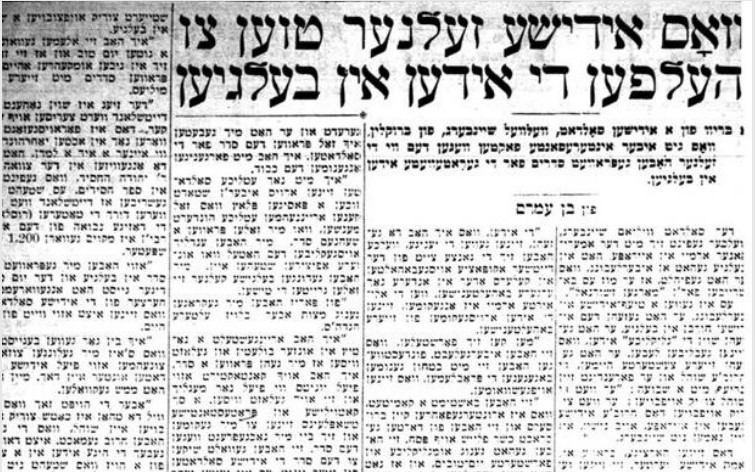
80 Years Ago in American Jewish Newspapers
Letter from Liberated Belgium Eighty years ago, in the days when the world was informed of the death of Hitler - may his name be erased - the American newspaper "Morgen Journal" (in Yiddish) published a letter from a soldier named Velvel Scheinberg from Brooklyn, who was stationed in liberated Belgium at the time. The letter is very moving and expresses the feelings of many soldiers in the US Army, observant Jews, whose eyes were filled with terror, and they decided to do everything in their power to build communities and rehabilitate the survivors. "Ben Amram," the newspaper's wri... Read more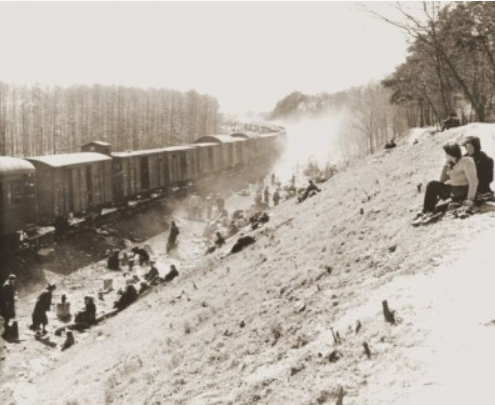
80 Years Since the Liberation of Bergen-Belsen
First article: The train, Farsleben, and the village of Hillersleben By: Yaakov Rosenfeld, Ganzach Kiddush Hashem The British soldiers who liberated Bergen-Belsen, exactly eighty years ago, did not easily let go of what they saw with their own eyes. More than being surprised by the Nazi extermination itself, they were likely horrified by the sight of the survivors and the unimaginable number of bodies scattered across the field. In the days following the liberation, throughout the entire month of Iyar 5705 (1945), until the establishment of the Bergen-Belsen DP camp, not far from the... Read more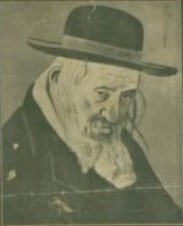
Salvation in Debrecen
Story by Yaakov Rosenfeld, Ganzach Kiddush Hashem Commemorating the 100th yahrzeit (anniversary of the passing) of Rabbi Yeshaya of Kerestir The Second World War came to an end, leaving behind broken-hearted Jews scattered here and there throughout Eastern Europe. In the city of Debrecen, too, there were some shell-shocked Jews living, trying to rebuild, and among them was a small family; a father, mother, and daughter, who had previously been Torah and mitzvah observant. The father and mother both sadly abandoned their heritage. They became secular, but the daughter went one ... Read more
The Town that Came Back to Life
100 years since the passing of the tzaddik (righteous man), Rabbi Yeshaya son of Rabbi Moshe The Jewish town, known today for the grave of Rabbi Yeshaya son of Rabbi Moshe Steiner, is empty of Jewish residents. The Holocaust claimed the lives of its Jewish residents and erased its rich history. Kerestir is the Yiddish name for Bodrogkeresztúr, located in the Borsod-Abaúj-Zemplén area, Tokaj County, Hungary. Today, Kerestir is an important stop on the "Wonder Rabbis' Road" – a project of the Jewish community in Hungary with the support of the European Union. The Hungarian Rebbe's... Read more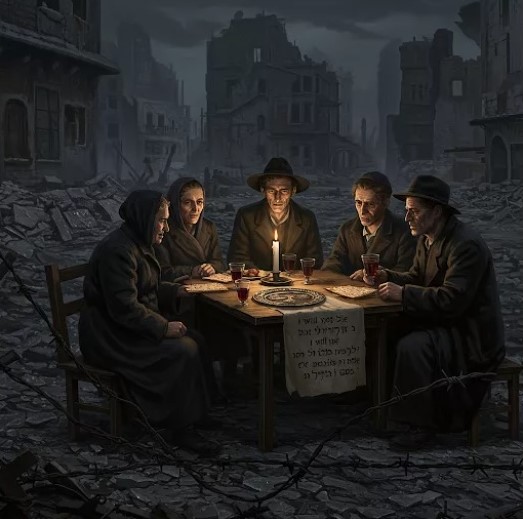
Seder Night in the Year of Liberation, 5705 (1945)
By: Yaakov Rosenfeld, Ganzach Kiddush Hashem Eighty years ago, in those days, the good news of liberation was already beginning to be felt in Europe. Nisan 5705 was marked by the sweeping victories of the Allies, the summer of 5705 brought with its wings the good news of liberation from the jaws of the Nazis. The survivors of the horror sat silently on Seder night, and with tears in their eyes, they said, "And He brought us out of there"… He brought us out, but where is the whole family, the whole town, the whole community… A whole world was destroyed, and the burden of the new ge... Read more
The Boy from the Displaced Persons Camp Who Never Stopped Searching
By: Yaakov Rosenfeld, Ganzach Kiddush Hashem Photo courtesy of Wikipedia Today (Nissan 12 5705/April 10th, 2025), Yisrael Katzover, the veteran journalist for the Hamodia newspaper, whose security analyses and commentaries accompanied generations of chassidim and men of action for whom "A. Pe'er" (his pen name) was the only source of news, especially during wars and security crises, which were never lacking here. "A. Pe'er," who wrote in clear Hebrew and whose commentaries were sharp and harsh, was born, surprisingly, in a displaced persons camp in Austria to parents who were Ho... Read more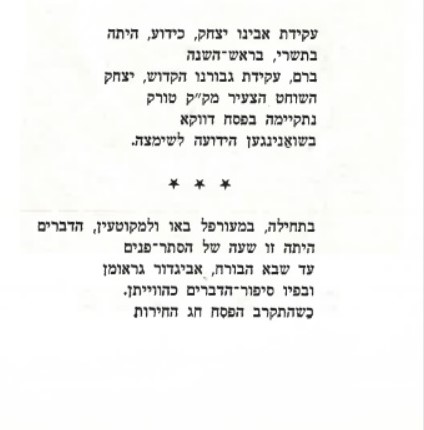
The Binding of Isaac on the Eve of Passover
This is the story of the great Rabbi Yitzhak Shub (acronym for shochet u'bodek - ritual slaughterer and inspector), the shochet of the city of Turek, Poland, who gave his life for the laws of Passover and his pure soul ascended to the uppermost chambers of Heaven on the eve of Passover 5702 (1942). The image of the miracles remained engraved in the hearts of all the heartbroken Jews of the ghetto, who were inspired by the words of faith and encouragement that flowed from the mouth of Rabbi Yitzchak, who was sentenced to death, on that Wednesday, the eve of Passover 5702, somewhere in the V... Read more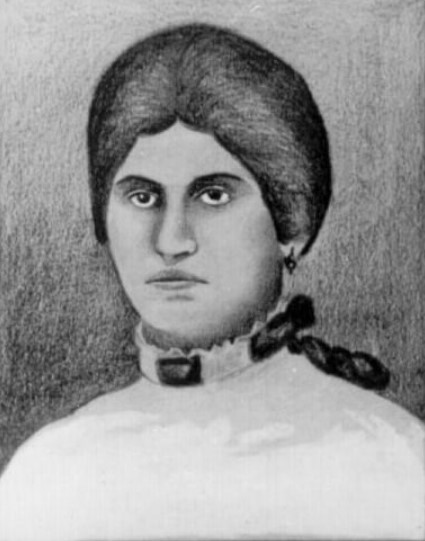
Sarah Schenirer Z”L – 90 Years Since her Passing
On the 27th of Adar 5695 (March 1st, 1945), exactly ninety years ago, the pure heart of Sarah Schenirer z"l, who is credited with founding Bais Yaakov - a network of schools for girls throughout the world, which brought about a Jewish revolution unparalleled in the entire course of Jewish history - passed on. Sarah Schenirer - a humble and pure-hearted woman who was pained by the religious decline of the generation in Poland in particular, and throughout Europe in general, built Bais Yaakov with her own hands, with the assistance and blessing of the great and righteous men of the generatio... Read more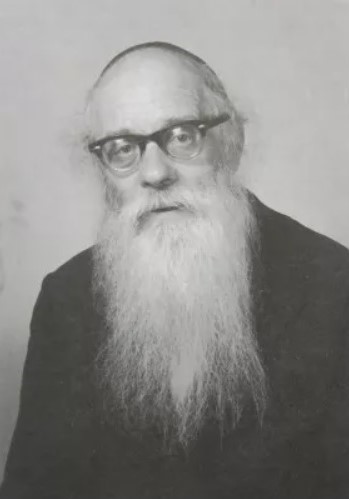
A Beacon of Light, Joy, and Faith
The genius chassid Rabbi Gad Eisner z"l, overseer of the Chidushei Harim yeshiva Commemorating his 40th yahrzeit (anniversary of passing) Adar 24, 5745 - Adar 24, 5785 For decades, Rabbi Gad served as a bridge between past generations and the younger generation, leaving a strong imprint of holiness and exaltation in the hearts of thousands of his students and associates. Streams of faith from the lives of souls flowed from his light and watered Israel with a pure and bright light of trust and the closeness to G-d in every situation. During the Holocaust, in which he lost his w... Read more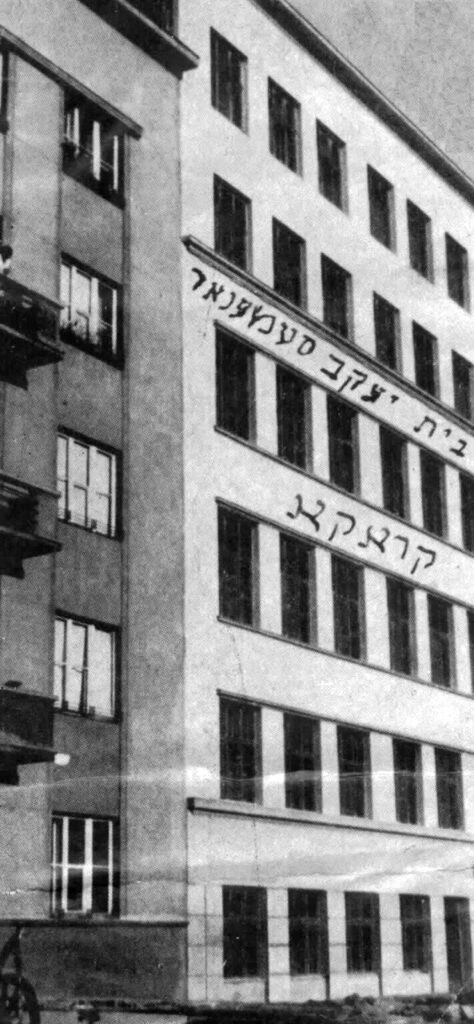
100 Years Since the Founding of the First Bais Yaakov Seminar
Originally published in 2022 Stanisława Street 10, Krakow, Poland Bais Yaakov, the educational revolution that saved generations, was founded by Sarah Schenirer in 5678 (1917-8), as a small school that operated within a private home. After receiving the encouragement and approval of the Gerrer Rebbe, Rabbi Avraham Mordechai Alter z"l, and of the holy Chafetz Chaim z"l (Rabbi Yisrael Meir Kagan), the idea began to take shape and became an extensive and institutionalized network of schools. The need arose to establish a seminar for the training of teachers and educators. The Bais Y... Read more
Her Words are Her Memorial
Sarah Schenirer z"l A person's life testifies to him. The life of our Mother Sarah, Ms. Sarah Schenirer z"l, testifies to the strength of her spirit, to her pure intentions, to the "vision of dry bones" that once haunted her. Her life's work – the Bais Yaakov movement – was and still is the fulfillment of the destiny of Jewish girls. A little of the legendary spirit emerges in her words and writings, and is presented in this article in her pure memory. (A collection of quotes from the book "She'oni Belevavechen" by her student, Mrs. Pearl Benisch). If only I could go out to them... Read more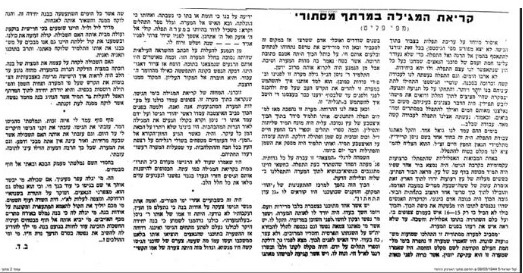
Reading the Megilla in the “Lower Garden of Eden”
A story published in the newspaper Kol Yisrael, Adar 14th, 5704 (March 9th, 1944), "From the mouth of a refugee," describing life in a cave on the outskirts of the Baranowicze Ghetto during the height of the Holocaust It was not long before we were forced to pray in secret and in hiding places, and prayer became a very difficult task for us, the work of the heart (a phrase refering to prayer -Editor) […] In those days, we had a saviour who made the work of prayer easier for us. It was a young man named Nissan Kreiditz, a student of the Chafetz Chaim, who managed to find us a safe ha... Read more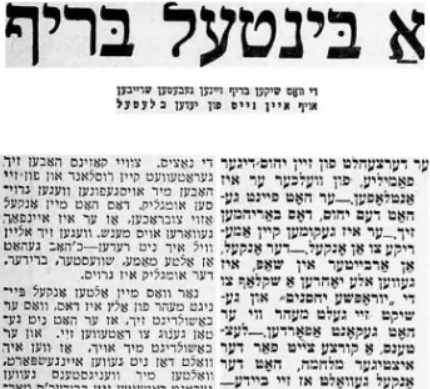
A Letter from a Broken Heart – 80 Years Ago
By: Yaakov Rosenfeld Much has already been written about the response of the United States in general, and of its large and wealthy Jewish community's reaction in particular, to the horrors of the Holocaust. In many places, the American military intervention, which was too late, has already been discussed, and especially its refusal to bomb Auschwitz and the tracks leading to it. The Rabbis’ March in Washington, D.C. on October 6th, 1943, the 7th of Tishrei 5704, three days before Yom Kippur, which attracted a great deal of media attention, also did not receive a respectful response from t... Read more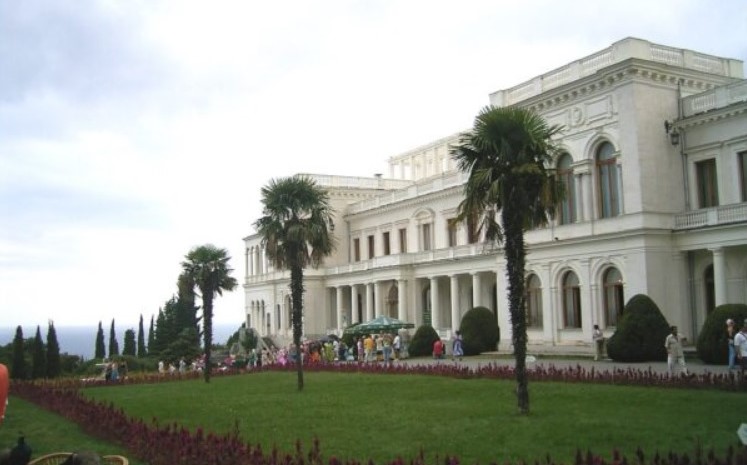
Yalta – 80 Years Since the Conference, and Memories of Days Past
Eighty Years Since the Yalta Conference Eighty years ago today, the Yalta Conference concluded, which brought together the heads of the world powers to discuss the fate of Europe in the face of the looming defeat of the Nazis. Beautiful and historic Yalta is located on the Crimean peninsula, surrounded by forested mountains and brimming with healing springs that have always attracted many tourists. The Crimean Peninsula in 1940 There was a Jewish community in Yalta, and with the Nazi occupation, the community members, about 1,500 in number, were liquidated in the ghetto that t... Read more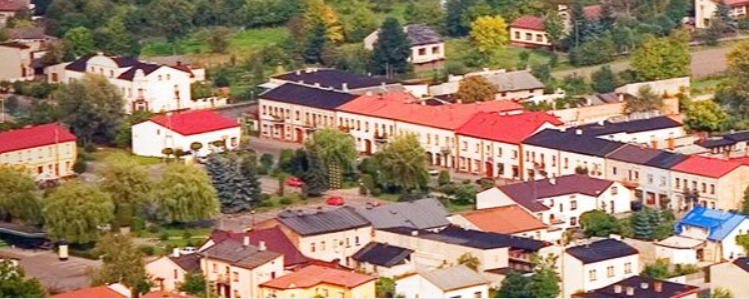
Lututów – A Town that Was
By: Yaakov Rosenfeld Not many people today know about the Polish town of Lutotów, in the Lodz province, not far from the German border, but it was a warm and joyous chassidic Jewish town, with a population of over 1,600 Jews. Of the 1,600 Jews, only 20 survived. Most of them were killed, and even their names are unknown. Yad Vashem's Pages of Testimony document only 207 names of Lutotów's Jewish residents. May G-d avenge their blood. The synagogue in Lutotów (Photo from the "Days of Lutotów magazine, published by the Lutotów municipality) In the elections for the municipality ... Read more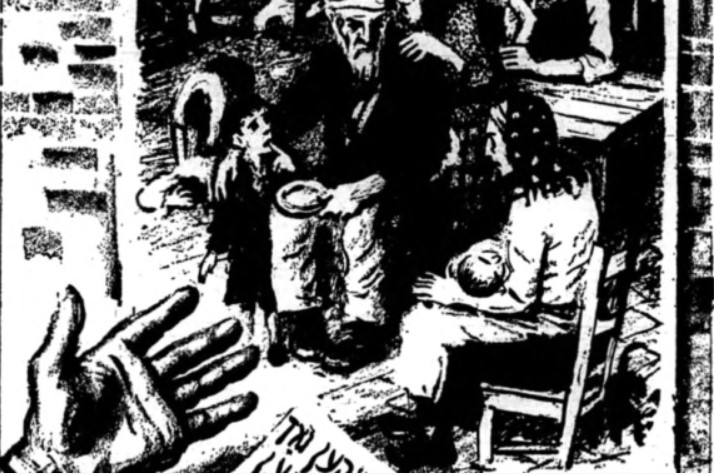
In the American Press – 80 Years Ago
A study of the American Yiddish press from eighty years ago reveals a tremendous awakening and a tremendous change in public opinion, which became an active part of the World War and ceased to be merely content with interest and expressions of sorrow and concern. The headlines of the end of Tevet 5705 and the beginning of Shvat are naturally occupied with the advance of the Allied forces and the areas occupied by the Red Army. The horror is beginning to be revealed and the shock is evident in the articles, news segments, and opinion columns. The first week of Shvat 5705 brought with it the... Read more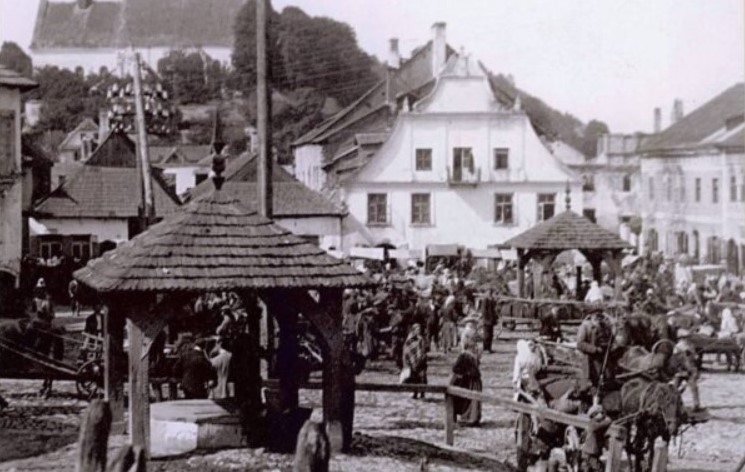
Once Upon a Time, There was a Magical Town Called Kuzmir
85 years since the destruction of Kuzmir (Kazimierz Dolny), 1940-2025 The synagogue in Kuzmir A memorial by Yaakov Rosenfeld. Source: M. Tzanin z"l, Tel Olam The month of Tevet 5700 (January 1940) brought destruction and annihilation to the ancient community of the picturesque town of Kuzmir, which lies, as if cushioned, in a valley between green forests and the calm Vistula River. Atop the hill, stands the palace of the king, the lover of Jews, Kazimierz, after whom the town is named (Kuzmir is the Jewish - i.e. Yiddish - name of the town. There are other cities and towns in ... Read more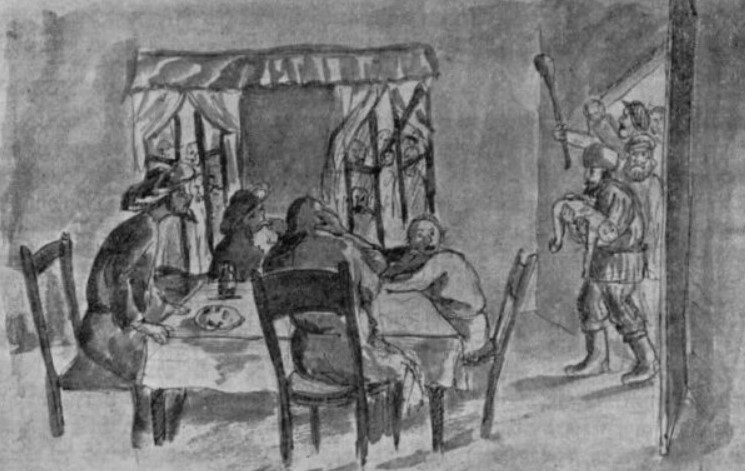
120 Years Since the Blood Libel in the Village of Baden
In memory of the Jews from the villages surrounding Lancut By: Yaakov Rosenfeld Simple and pure-hearted Jews lived for ceturies in the villages around Lancut. Hard-working and dedicated Jews who worshipped their Creator, gave charity, welcomed guests, and learned Torah as much as they could. We will tell about one of these Jews here, a kind-hearted and upstanding Jew who, about forty years before the outbreak of the Holocaust, died in sanctification of the Name of G-d due to a blood libel. In the village of Baden, there lived an 86-year-old Jew named Yaakov Bialobrzeger, and for h... Read more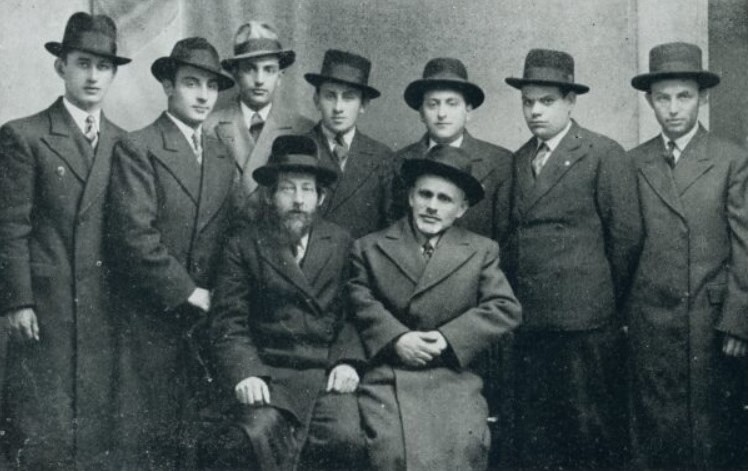
Lancut – Part 2
By: Yaakov Rosenfeld To read part 1, please click here. To get to know the characters of the town of Lancut, we will bring memories of some of the people from the town, who longed for the magical world that was and is no longer. When I feel like writing about a character from the Jewish town that was, the figure of my grandfather z"l from Lancut stands before me. I believe that this he was the dearest and best grandfather in the world. But I know that even if I manage to describe his wonderful character, without bias and without letting my emotions overcome me, I will only be able to... Read more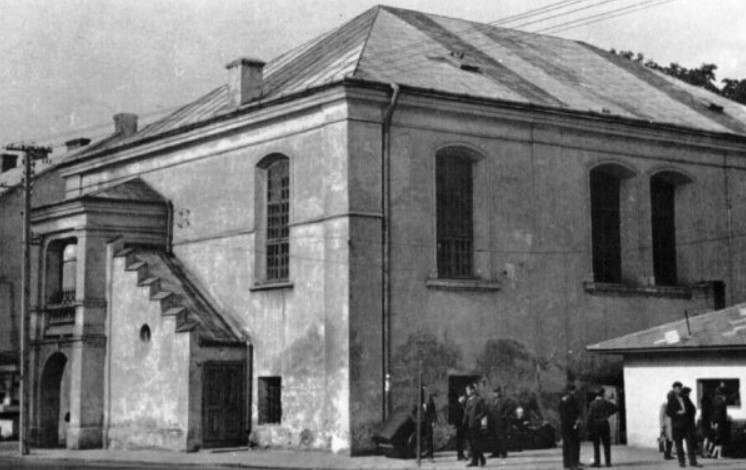
Lancut
85 years since its destruction By: Yaakov Rosenfeld Lancut, an ancient Jewish town, was home to Jews for many years. The Chozeh (Seer) of Lublin previously lived in Lancut before moving to Lublin. The Bnei Yisaschar rabbi also lived in Lancut, as did other great and righteous Jews. Prior to the Holocaust, 2750 Jews lived in Lancut. Of these, only about 900 survived, those who fled to the Soviet Union at the start of the war. Jews in Lancut during the Holocaust, wearing the star of David armbands Virtual tour of Lancut: https://lancut.wkraj.pl/html5/index.php?id=37772#44154/... Read more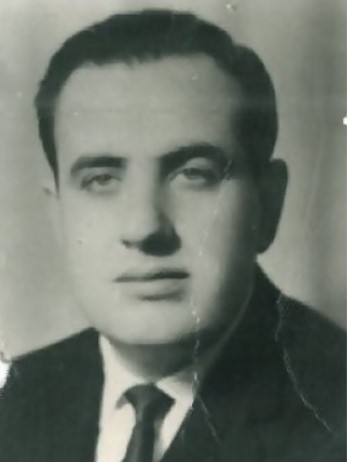
Damascus and Beirut – Jewish Memories
In this fateful period, in light of the upheavals in Syria and Lebanon, we recall their recent Jewish history and bring up memories, both more recent and old, of a Jewish existence that was and is no longer. By: Yaakov Rosenfeld - Article 1 The Magen Avraham Synagogue, Beirut 100 years ago, in the year 5685 (1924-5) the Magen Avraham synagogue was established in the Jewish quarter of Beirut, located in Wadi Abu Jamil, northwest of Beirut, Lebanon. The synagogue was the center of the Lebanese Jewish community, and in addition to it, there were two other synagogues in the neighbourh... Read more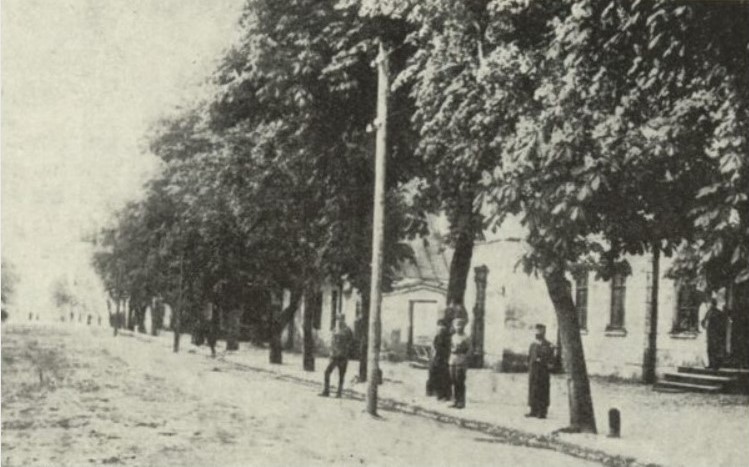
Kozienice, a Significant Jewish Community – 85 Years Since Its Destruction
Kozienice (Yiddish: Kuznitz), which became famous for its chassidic court and holy rebbes, was a predominantly Jewish city on the eve of the Holocaust. Jews in the Kozienice Ghetto, Poland, in 1940 The Jewish community lived in Kozienice for about 400 years. The two main industries were tourism (as many Jews visited the Kozienice holy chassidic court and the grave of the Maggid of Kozienice - the founder of Kozienice chassidism) and shoemaking. There were about 5,000 Jews in the city before World War II. In the 19th century, the Jewish community of Kozienice had a huge influence ... Read more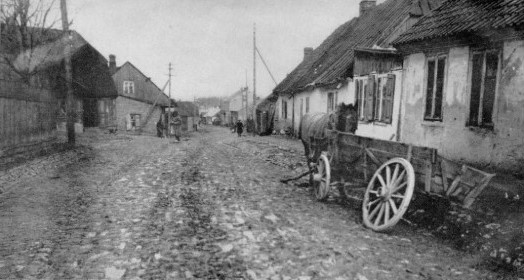
The Victims from Ciechanow
By: Yaakov Rosenfeld At this time, 85 years ago, the disaster in the well-known Jewish town of Ciechanow, began to unfold. For 300 years, Ciechanow was a typical Jewish town, where warm and pleasant Jewish life, a life of Torah and Chasidism, thrived within the walls of its old, pleasant, and beloved homes. On the night of September 3rd-4th, 1939, the Nazi German army captured Ciechanow. Its name was changed to Zichenau, and it became the capital of the Zichenau district, which was annexed to the Third Reich. An SS unit was stationed in the city. The demolition of Jewish homes and th... Read more
Conference of American Rabbis, Call for Help for European Jews, & Statement by UNRRA Director-General
From American Jewish Newspapers, 80 Years Ago Today By: Yaakov Rosenfeld 1 Call to the Conference of American Rabbis Exactly eighty years ago, during the twilight of Nazi rule across Eastern Europe, when the campaign of extermination of Hungarian Jewry was in full swing, the Conference of Rabbis of the United States and Canada convened a meeting in the United States. The conference, whose stated goal was to strengthen Torah and Judaism in the United States, was held at the beginning of the month of Kislev and was attended by Orthodox rabbis, activists, and delegates from all ov... Read more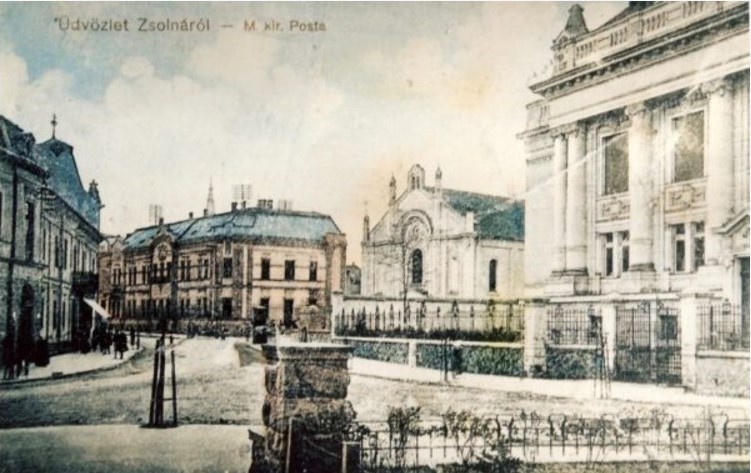
“Avraham, Avraham!” And He Said, “Here I Am”
(Genesis 22:11) The Sacrifice of Avraham, a Ger Tzedek (Righteous Convert) from Slovakia An emotional testament, marking 80 years since the liquidation of glorious Slovakian Jewry Rabbi Yissachar Shlomo Teichtel At the end of last week's Torah portion, Chayei Sarah, when I read about the passing of Avraham our forefather, who passed at an elderly and fulfilled aged, I was reminded of another Avraham who was killed 80 years ago, but was not old, yet was fulfilled. This is the story of a ger tzedek by the name of Avraham Klein, who went to death with self-sacrifice, joy, and fai... Read more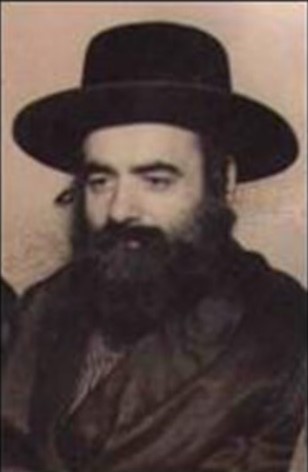
Father of Orphans
75 years since the passing of the genius tzaddik (righteous) Rabbi Mordechai of Bilgoraj z"l By: Yaakov Rosenfeld The Rabbi of Bilgoraj, Rabbi Mordechai Rokeach z"l, escaped from burning Europe at the last moment, but unfortunately faced great sacrifices; his wife and only daughter were killed after fleeing from Bilgoraj, Poland to the city of Kobryn, where the rebbetzin's (rabbi's wife) family lived. Rabbi Mordechai Rokeach of Bilgoraj z"l Everyone saw his soul's strength in the first years of his settlement in the Land of Israel. From the time he received the horrific news a... Read more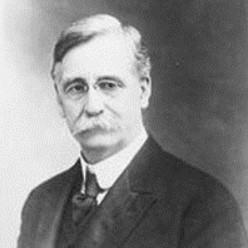
100 Years Since the Immigration Laws were Enacted in the USA
5695 (1924) By: Yaakov Rosenfeld The immigration laws enacted in the United States a century ago indirectly caused the tragedy of millions of Jews from around Europe who, between the two wars, requested to immigrate to the United States, and were refused. The United States, from its foundation, flourished and prospered thanks to being a country that accepted immigrants. Mass immigration made the United States a superpower. For hundreds of years, immigration to the United States was seen in the traditional American ideal as a way to give refuge to the persecuted, as well as a source o... Read more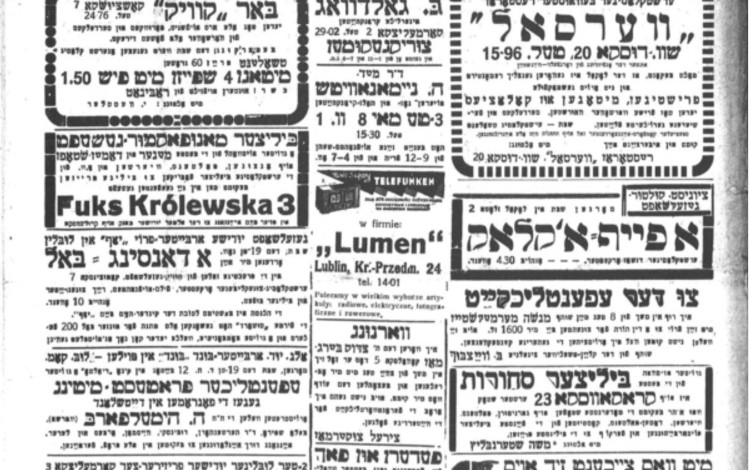
Kristallnacht through the Eyes of Newspapers of the Period: Insights and Reflections
On the anniversary of the events of 5698 (1938), which the Nazis called "Kristallnacht" (Crystal Night) - and and for some reason this name has stuck for generations - it is interesting to look at the headlines of the newspapers that were published at the time, and to reflect on their insights. The newspapers of American Jewry, both religious and conservative ones and others, covered the pages with black headlines and told about the horror in detail, while the newspapers of Poland, Lithuania, etc. were busy that day, November 11th, 1938, with completely different matters. Dry headlines and... Read more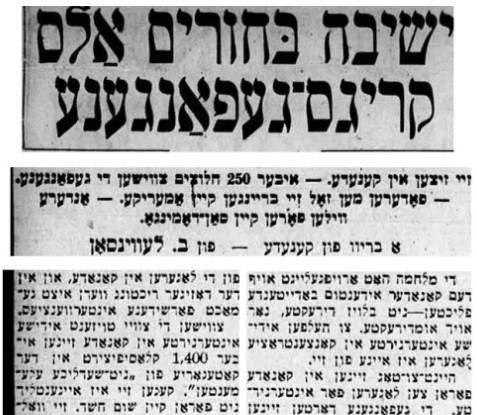
Frankfurt Yeshiva Boys in Captivity in Canada
In Tishrei 5701 (October 30th, 1940), an article titled "Yeshiva Bochrim Alles Kreegs Gefangeneh" (Yeshiva Boys as Prisoners of War) was published in the Der Tog newspaper in New York. The article, whose subtitle reads "Letter from Canada by B. Levinson," tells about the concentration camps, scattered across Canada, where Nazi prisoners of war lived together with Jews from Germany who were captured by the British army and held together in difficult conditions. The number of Jewish prisoners, according to the newspaper, was then over two thousand, most of them Jews who escaped from Germa... Read more
The Sonderkommando Uprising – October 7th, 1944 – Part 3
By: Yaakov Rosenfeld Please click here to view part 2 and here to view part 1. As a continuation of our articles on the Sonderkommando Uprising, we will tell you about three individuals, good and pure-hearted Jews, who were guided by the Supreme hand of Providence to be part of the Sonderkommando, the dark group in the Shadow of Death, and despite being at the site of horror on earth, under the watchful eyes of the Nazi beast of prey, they did not lose thier G-dly image. They fought like lions until the last drop of their blood and sanctified Heaven there in their lives and death. Ther... Read more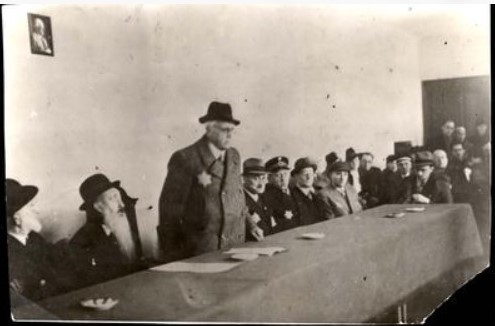
The Holy Rabbi Yosef Feiner Z”L of Lodz, May G-d Avenge His Blood
Eighty years since his death in sanctification of G-d's Name By: Yaakov Rosenfeld, Ganzach Kiddush Hashem 80 years since the liquidation of the Lodz Ghetto Eighty years have passed since the liquidation of the Lodz Ghetto, and we at Ganzach Kiddush Hashem have produced a two volume book on the Jews of Lodz and their destruction. At the end of the Jewish year, in the end of Elul 5784 (2024), on the eightieth anniversary of the murder of Rabbi Yosef Feiner, may G-d avenge his blood, who was one of the greatest rabbis of Poland in the interwar period, we spoke about this exhalted... Read more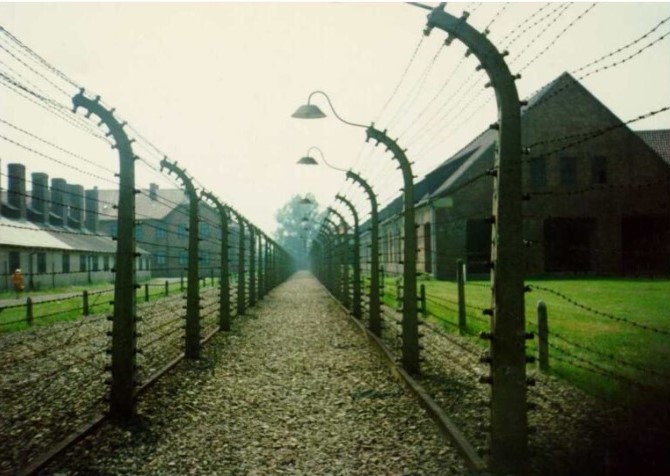
The Sonderkommando Uprising, October 7th 1944 – Part 2
Please click here to read part 1 By: Yaakov Rosenfeld, Ganzach Kiddush Hashem In this chapter, we will shed light on the lives and deaths of the three victims who wrote and documented what happened in Auschwitz-Birkenau. I will briefly describe the Sonderkommando, and on this occasion I will bring heart-wrenching testimonies, precisely from the mouths of these very people, about the spiritual heroism of the holy Jews, the prisoners of Auschwitz. Their role was impossible, and clearly inhumane. They were forced to perform disturbing tasks. Just imagine the shock of a man who arrived b... Read more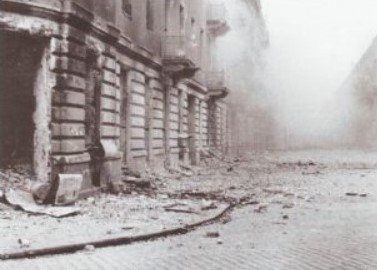
A Noble Jewish Prayer in the Midst of the Warsaw Uprising
80 Years since the Warsaw Uprising By: Yaakov Rosenfeld Eighty years ago in the month of Elul 5704 (August 1944), a war of destruction took place in Warsaw. This was over a year after the liquidation of the Warsaw Ghetto and the extermination of all the hundreds of thousands of Jews who lived there. The people of the Polish underground prepared for a long time for the uprising, and the signal was given at the beginning of the month of Av. The results of the uprising were tragic for Warsaw. The city was completely destroyed. The Nazis fought brutally and murdered hundreds of thousands... Read more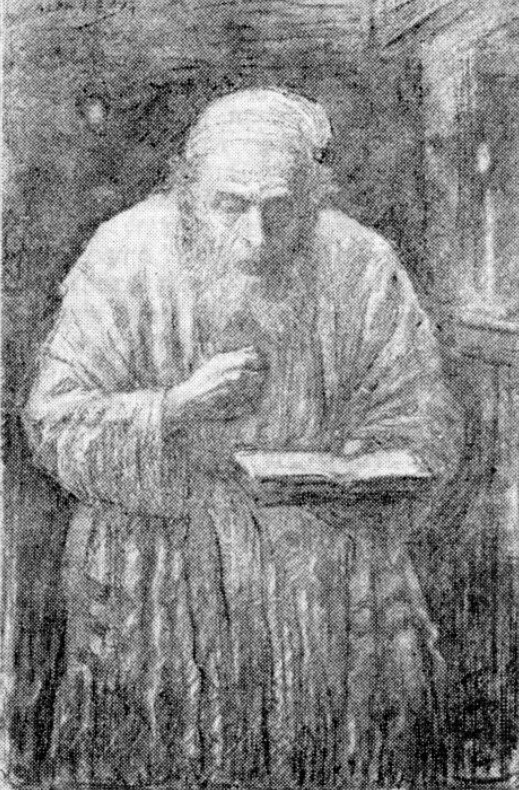
The Sounds of Yom Kippur: The Prayer that will be Heard Forever
I have no idea what will happen to us in another day against Iran, if Dizengoff Square will stand in 100 years, but in 1,000 and 2,000 years and no matter what happens - on the eve of Yom Kippur after sunset, Jews will stand and pray "Kol Nidrei" By: Shoshana Chen (first published in Hebrew in "Yediot Achronot," chief editor Avi Meshulam, on Yom Kippur eve 5785/2024) Until the end of his life, Shimon Peres preserved the memory of the "Kol Nidrei" prayer in his hometown, where most of its Jews were murdered in the Holocaust: his grandfather, may G-d avenge his blood, passed in front of t... Read more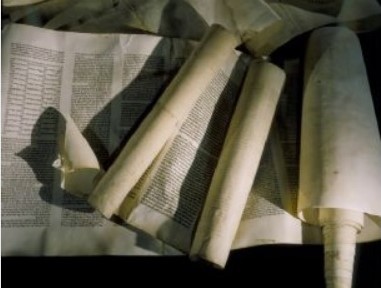
The Rabbi Isaac Elchanan Theological Seminary’s Small Torah, New York
By: Yaakov Rosenfeld Hoshana Raba 5702 (1941), Radovic (Bukovina) At the train station, hundreds of cars stood by, swallowing up thousands of Jews who were brutally expelled from their homes by the Nazis. About 15,000 Jews stood crammed inside the cars, waiting to move, and once the train started moving, it didn't stop for a single moment. The overcrowding was terrible and the suffocation unbearable; this is how they traveled day and night, each one immersed in himself, although surrounded by family members. Despair gnawed at their hearts and deathly silence surrounds the space in th... Read more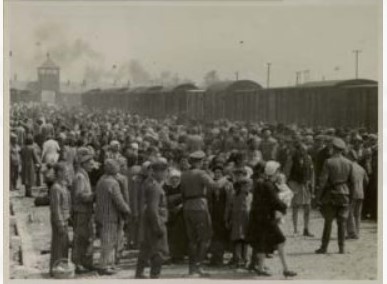
The Sonderkommando Uprising, October 7th, 1944 – 80 Years – Part 1
By: Yaakov Rosenfeld, Ganzach Kiddush Hashem A Scar in the Heart of the World The events of October 7th, 2023 happened exactly one year ago. The horror that took place then is a scar in the heart of the whole world, and there are no words to express it. Who would have believed that today, in a generation in which there are still living Holocaust survivors, Israel would be moved by a tragedy of this magnitude? Who could have imagined that nowadays such a massacre would take place in broad daylight? However, although it is clear that this horror should not be compared to the Holocau... Read more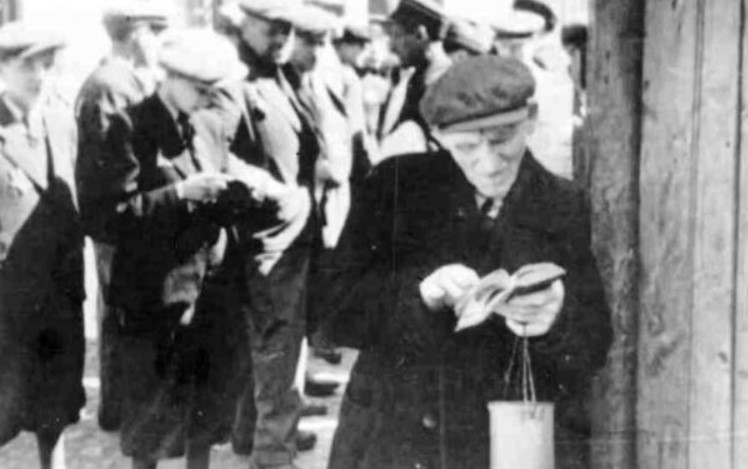
Yom Kippur under Siege and in Distress
Memories of the first (5700/1939) and last Yom Kippur (5705/1940) in "the years in which we saw evil." 80 ago, and 85 years ago. Yom Kippur Eve "Boycott" on the organizers and participants of private minyans (prayer quorums) on Yom Kippur. At the beginning of the occupation, the Germans set a curfew for the Jews in Zegrze, as elsewhere. From 5 pm until the next day at 8 am, Jews were not allowed to leave the house. Jews were forbidden to hold gatherings and social meetings of any kind. In particular, they were forbidden to pray in groups, in any form. All synagogues, study h... Read more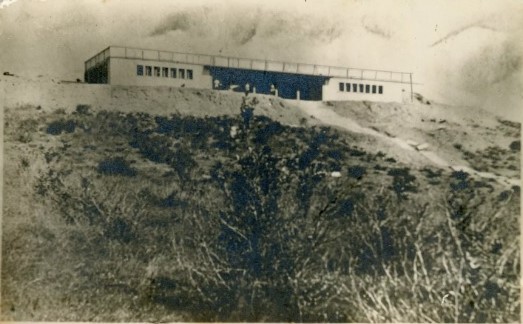
The Man and the Vision
By: Yaakov Rosenfeld Fifty-five years ago, the pure soul of the Ponevezher Rebbe passed on. The Rebbe never stopped dreaming and aspiring, and with his great spirit he was able to fulfill his dreams and ambitions in an unbelievable way; from their strength, the yeshiva world was built in Israel. His work is a pillar and cornerstone for countless institutions and yeshivas all over. The Torah world in Israel cannot be described without the wonderful vision of the Ponevezher Rebbe. The Jewish People were, at the time, heartbroken and disaster struck. Most of the Torah and chasidic world wa... Read more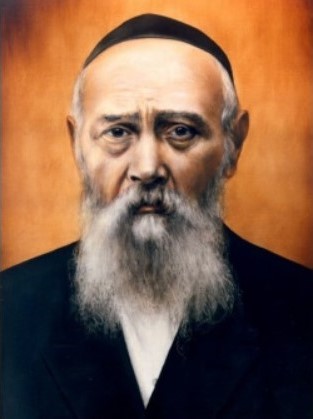
The Sacrifice of Levi Yitzchak
80 years since the passing of the genius kabbalist Rabbi Levi Yitzchak Schneerson z"l, the rabbi of the city of Yekaterinoslav (now Dnipropetrovsk), father of the most recent Lubavitcher Rebbe z"l At a time when the term "self-sacrifice" has been given a new meaning, and in days when the younger generation hardly knows or sees Jews of self-sacrifice, precisely now, in the midst of summer vacation, we at Ganzach Kiddush Hashem stop and reflect on the life and death of one holy man, who actually gave his life for the sake of G-d and His Torah, for Judaism and the Jews, and as punishment, spe... Read more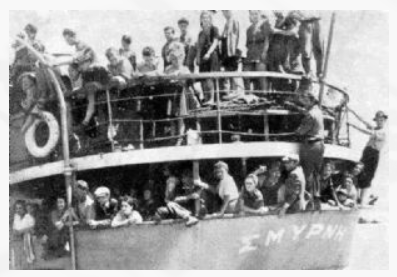
80 Years Since the Mefküre Disaster
By: Yaakov Rosenfeld The Mefküre ship disaster that occurred exactly eighty years ago is an event that the tzaddikim (righteous men) of Vizhnitz often carried in their hearts with sadness and grief. Mefküre was the rosy hope that crashed in the middle of the sea, and became a black hole in the heart, a hole of longing and burning sadness. But to begin, the dry historical data of the Mefküre, courtesy of Wikipedia: The Mefküre was an illegal immigration ship that sailed from Romania to Turkey in August 1944, and was sunk on its way by a submarine. Out of over three hundred passenge... Read more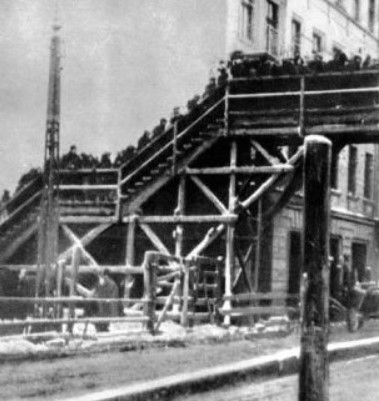
“Oh How It Sat Lonely” (Lamentations 1:1)
In a few weeks, we will commemorate the 80th anniversary of the liquidation of the Lodz Ghetto. Symbolically, this will happen just when the new book about Lodz will be published; Two volumes of an elaborate and eye-catching book, the first of which brings the story of Lodz, the great city, and its sad end. One of the hundreds of thousands of Jews who endured the Lodz ghetto until it was destroyed is Rabbi Menachem Oppenheim, who even wrote a diary about the ghetto in his "Derech HaChaim" (The Way of Life) siddur (prayerbook). Before you is a page from the Kinnot (elegies) in this siddu... Read more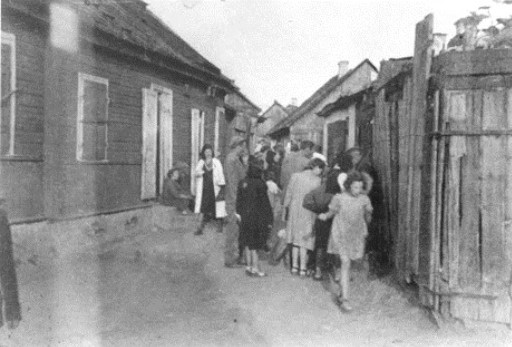
The End of Tammuz 5704 – The Bitter End of the Kovno Ghetto
(Photos from the Ganzach Kiddush Hashem Archives) The deportation from the Kovno Ghetto Exactly eighty years ago, at the end of the month of Tammuz 5704 (July 1944), the Kovno Ghetto faced its final liquidation. 2,000 Jews were killed throughout the ghetto in all kinds of ways, and the rest were scattered in various death camps on the way to their brutal deaths. The liquidation was preceded by the well-known action in 1941 in which 9,000 Jews were killed out of 30,000 Jews in the Kovno Ghetto; The next two years were indeed quiet in terms of mass murders, but even then, the gh... Read more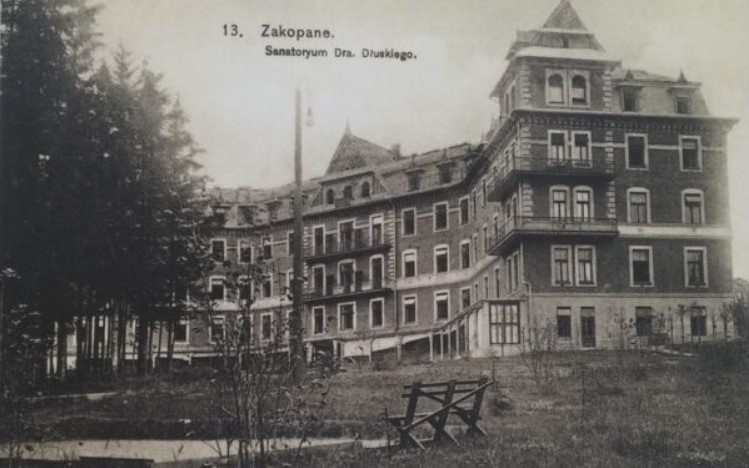
Zakopane, the Polish Summer Vacation Town
Somber memories for the vacation season. In 1946 the Poles massacred survivors. The survivors who tried to return to their homes experienced terrible pogroms. Jewish blood was spilled in the streets of Poland, and there was no one to protect them. Even in Zakopane, the magical resort town, Jews were beaten and persecuted. Sole survivors of their families and communities found no rest in the beautiful ski town. I was reminded of this when I saw the advertisement calling for the ultra-Orthodox community to vacation in Zakopane. I remember myself in the Ganzach Kiddush Hashem library, r... Read more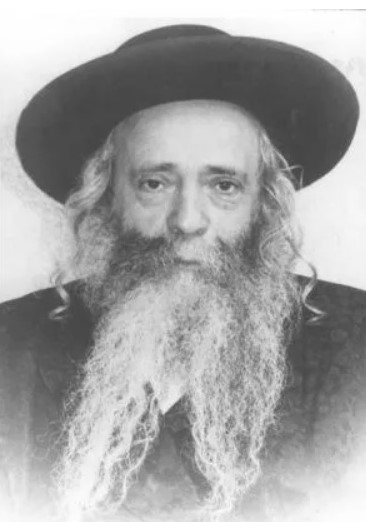
A Horrible Summer Journey with the Rebbe of Sanz, during the Holocaust
Marking thirty years since his passing, Tammuz 9, 5754 - Tammuz 9, 5784 (June 18, 1994 - July 15, 2024) The holy Rebbe of Sanz (the Sanz-Klausenberger Rebbe) Eighty years have passed since that terrible journey. From a historical perspective, eighty years is not a long time at all, and perhaps that is why it is so difficult today to understand how these people, almost our contemporaries, survived this journey and how they recovered from it. How did they manage to move on and to rebuild? Today, on the thirtieth anniversary of the passing of the holy Rebbe of Sanz z"l, who exper... Read more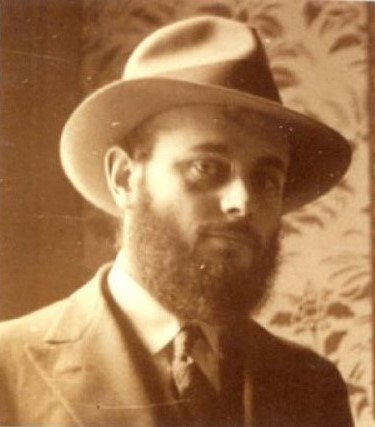
Yossel’s Story
In honour of the 30th yahrzeit (anniversary of death) of the Lubavitcher Rebbe This is the story of Yossel, a Torah and mitzvah observant Jew who merited to raise a family and glean from it Jewish pride. In honour of the yahrzeit of the Lubavitcher Rebbe, we publish it here in detail, as Yossel told it. Yossel's father went through the horrors of the Holocaust and came to Israel broken and torn. In Hungary, the country of his birth, he lost all his family, friends and all his dreams. Yoseel's father was a young butcher and that was his livelihood, and when his world was destroyed he fou... Read more
“To Remember and Not to Forget”
A letter from the Lubavitcher Rebbe z"l to the author and Holocaust survivor, Elie Wiesel z"l. In this letter, the Rebbe explains his systematic teaching on the intricacies of the issue of the Holocaust and faith. A document that must be carefully read. Presented in honour of the Lubavitcher Rebbe's 30th yahrzeit (anniversary of death), courtesy of JEM and the Lubavitch Library Nisan 24, 5725 (April 26, 1965) "By chance" I came across his (Elie Wiesel's) article in the Passover issue of "Jewish Advocate" - "On Jewish Atheists." "By chance," because his article appears on the othe... Read more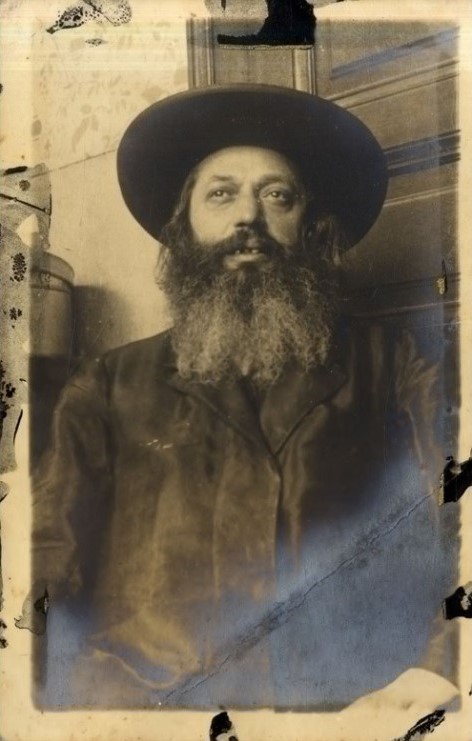
The Way to the Garden of Eden
It was exactly eighty years ago. The sounds of the rattle of the train wheels merged with the sounds of singing coming from the train cars. At first it was quiet and hesitant singing, and after the energetic encouragement of the revered rabbi, the singing became strong and resounding, the singing of the ministering angels. The genius and holy Rabbi Yehoshua of Galanta, may G-d avenge his blood, was one of the great scholars of the generation in Hungary whose light shone on the entire world. Thousands of students and followers followed the light of this exalted tzaddik who combined i... Read more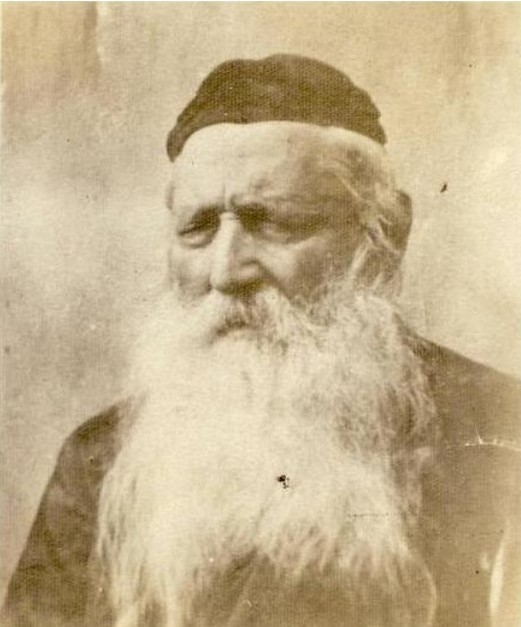
“This is the Burnt Offering which Burns…” (Leviticus 6:2)
80 years since the destruction of the holy community of Erloi, the end of Sivan 5704 (spring 1944) In the months of spring 5704 (1944), the area between Oivilag and Oswada streets was set for use as a ghetto for Erloi Jewry. About two thousand Jews crowded into this narrow ghetto, 4-5 families per apartment. The conditions were unbearably difficult, but they had not yet reached the terrible suffering that the Jews began to experience when they were brutally taken a month later to the village of Karchand, and thrown like animals into deserted and dirty dungeons. The elderly Er... Read more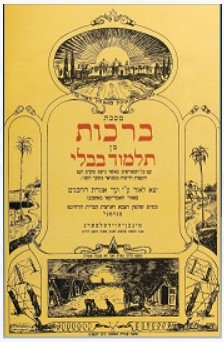
75 Years Since the American Army Printed the Shas
In the days when both the right-wing and the left-wing discuss the American aid that was or was not given to the IDF in this difficult war, I am reminded of the aid that the American Army provided seventy-five years before this current Iron Swords war, "military" aid that played a large part in reestablishing the Torah world after the Holocaust. "A War of Torah" - a sentence that every yeshiva student knows well, took on a special meaning in those fateful days, when the strongest and largest army in the world sponsored and actually printed the first elegant and complete Shas (6 orders of t... Read more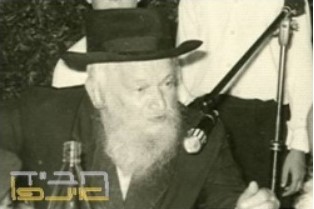
The Strength of the Soul of a Holocaust Survivor
Sivan 8, 5784 (June 14, 2024), 50 years since the tragic accident that shook all hearts By: Yaakov Rosenfeld The genius Rabbi Schneur Zalman Garelick survived the Holocaust and after many upheavals and torments of the body and mind, he arrived in the Land of Israel. He was a great scholar of Torah and Chasidism, and served as the first rabbi of Kfar Chabad. The Lubavitcher Rebbe was very fond of Rabbi Garelick and spoke highly of him. The Rebbe especially noted the fact that, being extremely old, he worked, acted and was active with the energy of a young person. In addition to his gr... Read more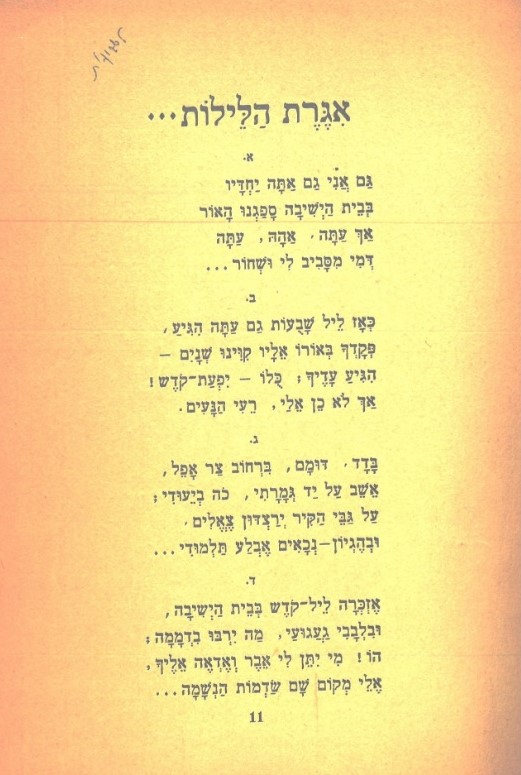
Letter of the Nights
From "MiKolot HaDmama" (The Voices of Silence). A poem for the holiday of Shavuot by Rabbi Tuvia Meirowitz, may G-d avenge his blood, rabbi and rabbinical court judge in the city of Alita (Alytus), Lithuania. From the Ganzach Kiddush Hashem archive By: Yaakov Rosenfeld In 5798 (1937-8), two years before the outbreak of World War II, the book "MiKolot HaDmama" - a collection of poems by Rabbi Tuvia Meirowitz, who served as rabbi of the Alytus - was published by the printing press of S. Movshowitz in the city of Kaiden (Kėdainiai), Lithuania. Alytus, a city in southern Lithuania... Read more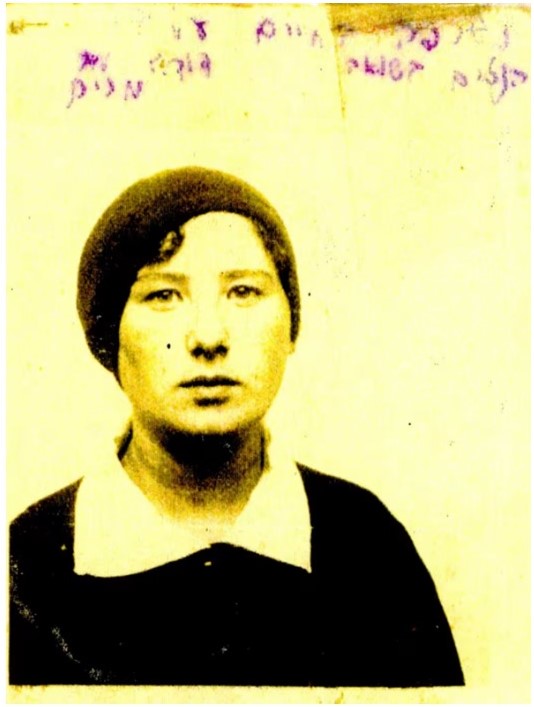
Burned Parchment and Letters Flying Up to the Heavens
In memory of the martyr, Miriam Zlatani z"l, a young Bais Yaakov teacher And upon their return, they found Rabbi Chanina ben Teradyon, who was sitting and engaging in Torah study and convening assemblies in public, with a Torah scroll placed in his lap. They brought him to be sentenced, and wrapped him in the Torah scroll, and encircled him with bundles of branches, and they set fire to it. And they brought tufts of wool and soaked them in water, and placed them on his heart, so that his soul should not leave his body quickly, but he would die slowly and painfully. His daughter sai... Read more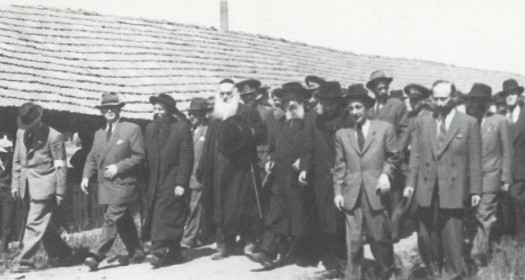
The End of Iyar 5704 (Spring 1944) – The Destruction of Sighet, a Major Jewish City
By: Yaakov Rosenfeld, Ganzach Kiddush Hashem Recently, we marked 80 years since the destruction of the great sity of Sighet. Sighet, the beautiful city with a magical view of the Carpathian Mountains and from where the life of Torah, activity, and craftsmanship flowed; a city full of deep-rooted Jewish grace and full of endless kindness for others. The destruction of Sighet took place at the end of the month of Iyar 5704. Many trains made their way from the stations of the Maramures region towards Auschwitz and in their carriages were innocent and pure Jews: men, women, and children,... Read more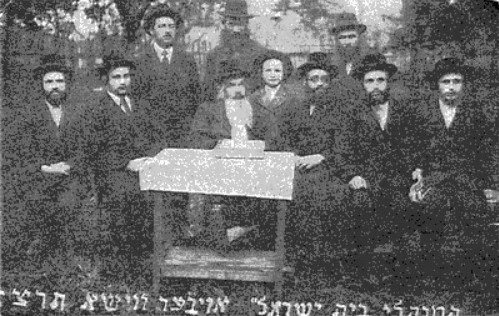
Oibervishava, A Magical and Pious Town in the Carpathian Mountains
On the eve of the Holocaust, 4269 Jews lived in this town, about fifty kilometers east of Sighet. Most of the community were Torah and mitzvah observant, chasidic and strict in their mitzvah observance, and a large and well-known yeshiva was established there. At the end of the month of Iyar 5704 (spring 1944), the Nazi harvester came upon this peaceful, beautiful, and pious town, and its Jews were deported to Auschwitz, where they were killed in sanctification of G-d's Name. For many years, at least from the year 5600 (1839-1840, according to the records), Jews lived in Oibervishava, w... Read more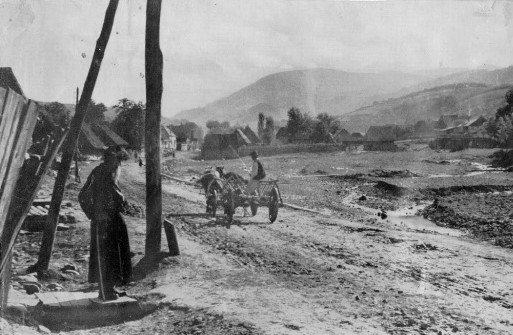
The Jews of Maramures – 80 Years Since they were Sacrificed
By: Yaakov Rosenfeld, Ganzach Kiddush Hashem The map of the Carpathians is dotted with many communities whose names are not known today, even though for hundreds of years this flourishing region was home to hundreds of thousands of Jews, pious, chasidic, and mitzvah observant. Opinions differ on the date of the beginning of Jewish settlement in this area. Among Jews from Maramures, the accepted opinion is that the Carpathian Jews were refugees from Poland, Galicia, and Hungary, who escaped the massacres of of Bogdan Chmielnitzky in the years 5408-5409 (1548-1650). The district of Mar... Read more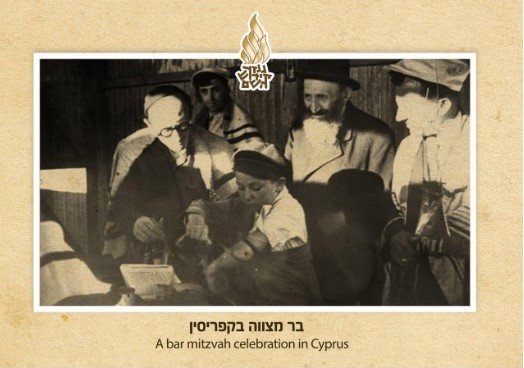
“Be Ready for 3 Days” (Exodus 19:15): Receiving the Torah in the Cyprus Detention Camps 5707 (1947)
"On Shabbat eve the Shabbat before Shavuot, also in Cyprus one seens the preparations for Tuesday." A porthole opens with these words, going back in time, reflecting the feeling of elation towards the holiday of the giving the Torah among those imprisoned in Cyprus. By: Devorah Surasky Who is the author? And when and where was the description written? Yehoshua Should Publish a Newspaper: "Newspapers in the Detention Camps" Cover of the "Prozdor" Newspaper, Tamuz 5707 (Summer 1947) On Nisan 25, 5707 (April 15, 1947), 2700 illegal immigrants arrived in Cyprus aboard the "Theo... Read more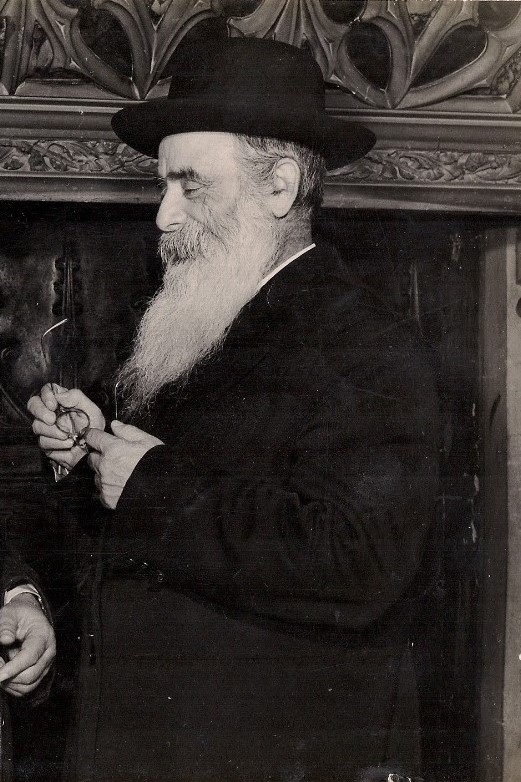
The Chassid Who Lit Up the Sky of Paris
Shining lights from the life and work of the genius chassid, Rabbi Shmuel Yaakov Rubinstein z"l, rabbi of the Agudat HaKehillot (Community Association) synagogue and the head of the Paris beit din (rabbinical court), one of the greatest followers of the Kotzk Lomza Rebbes, and the author of the Shearit Menachem 60 years since his passing: Adar 5724 - 5784 (1960 - 2024) By: Simcha B. Markson In the Shadow of Chasidim and Influential People In the city of Biala Podlaska, a major Jewish city, whose reputation precedes it, thanks to the majestic figures, the great men of the generatio... Read more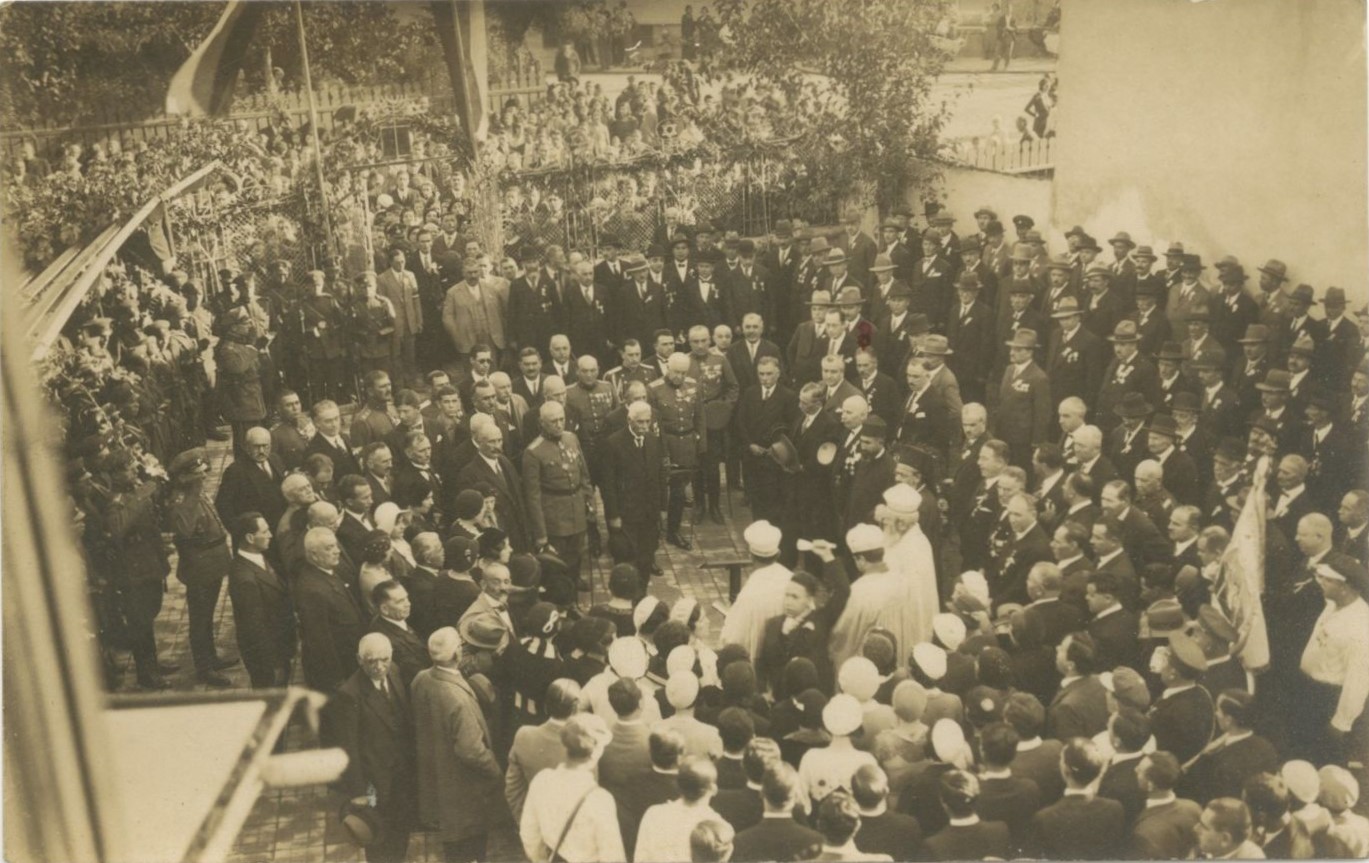
The Jews of Bulgaria – Before, During, & After WWII
Before the War There is no clear data when the first Jews appeared in Bulgarian lands. According to some researchers, this occurred shortly after the destruction of the First Temple (sixth century BCE), but the prevailing opinions are that the first settlers appeared in the period immediately before or after the Second Temple was destroyed (first century CE). There was a Jewish settlement in the region from the time of the Roman emperor Caligula (AD 37-41) while a Latin inscription from the late second century speaks about the existence of a Jewish community in the village of Oeskus near N... Read more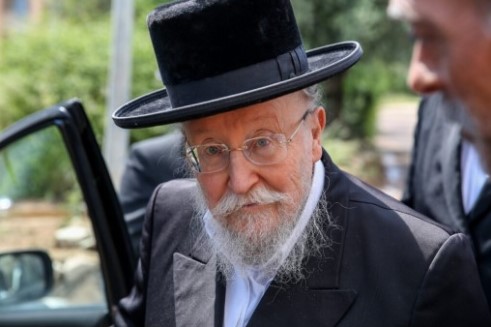
A Wonderful Genius, A Lofty Tzaddik, An Ember Saved from the Fire
On the first day of the shiva (7 day mourning period), I sat with the mourners, the sons of the Biala Rebbe z"l, and I heard wonderous things. This tzaddik (righteous man) was a remnant of the last generation that enlightened the world with his teachings and holiness. I asked the son of the Rebbe what his father told at home about those days, and his answer surprised me. I was even more surprised by the tone in which it was said. The son was surprised at the very question and said: "My father never talked about those days. Not about the Polish period, not about the Baranovice exile, not... Read more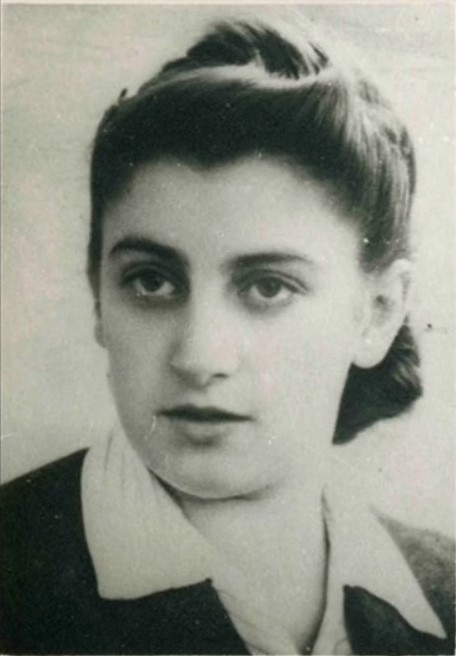
Shoshana Tannenbaum, Daughter of Rabbi Yitzchak Tzvi, Survivor and Last Remnant of a Large Family, who Fell in Sanctification of G-d’s Name in Kfar Etzion
Iyar 4, 5708 - Iyar 4, 5784 (May 13, 1948 - May 12, 2024) In 5684 (1923-4), Shoshana Tannenbaum was born in the city of Radomsk, Poland, to Yitzchak Tzvi and Perl. Upon the outbreak of the Holocaust, Shoshana and her family (the parents and six brothers and sisters) were taken to the ghetto. Shoshana was the only one of her large family to survive the camps and ghettos. She held on until liberation, and then was appointed director of Kibbutz Torah V'Avoda in Bedzin. When the members of the kibbutz were arrested and imprisoned in the city of Rybnik, it was Shoshana who led the persist... Read more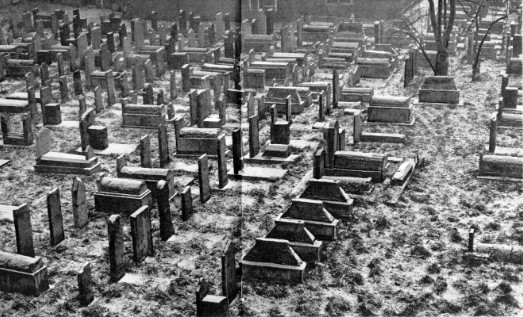
The Mystery of Krakow
On the Wonderous Past of Krakow • The Desperate Burial of Torahs • The Establishment of the Plaszow Camp and the Bombing of the Funeral Home • Where Did the Torahs Go? And where is the Rama Rabbi's Torah? • 80th Anniversary of the Chilling Events By: Simcha B. Markson The Wonderous Past of Krakow As an introduction to the story of the sixty-year-old mystery about the Torahs that were buried in the funeral home of the new cemetery in Krakow, we will open with a brief description of the life of the Jewish community that existed in the city for hundreds of years. As an introduction ... Read more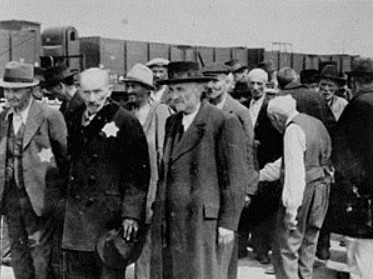
80 Years Since the First Train from Hungary Arrived in Auschwitz
Iyar 5704 (May 1944) Lyrics to the poem "A Small Boy on the Train" (originally written in Yiddish as "A Klein Yingle Oif Der Ban"), written in the last few days of a 12-year-old cheder boy's life. In it, he tried to describe the feelings of a boy his age standing dazed and scared at the train station in Auschwitz. A Small Boy on the Train - By: Yitzchak Isaac On the long train, I, a small boy Am travelling to Hungary, to my homeland My mother and father are waiting at home They are lovingly waiting for my brother and me I look outside, the world is green and pretty ... Read more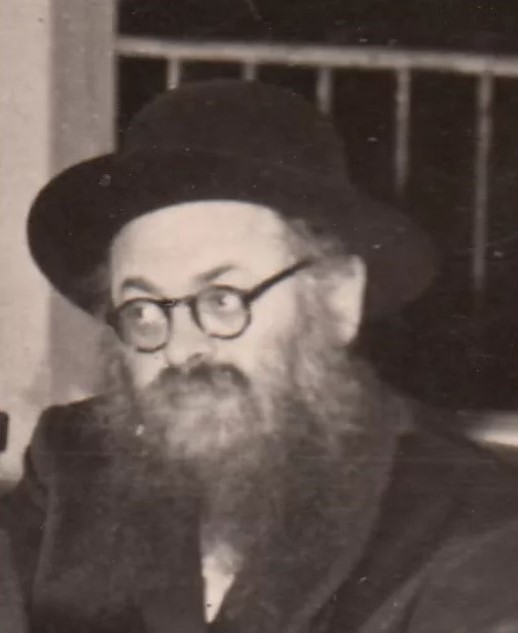
“Who Bows & Enters, and Bows & Exits, and Studies Torah Regularly” (Talmud Sanhedrin 88b)
The genius chassid, Rabbi Yeshayahu Mondry z"l, one of the eminent students of the Chachmei Lublin yeshiva and the Sfat Emet yeshiva; spread Torah in the Chidushei Harim yeshiva and the Sinai Talmud Torah; a judge in the religious court of Tel Aviv; a scholar with in depth knowledge of all areas of the Torah In honour of the 50th anniversary of his passing, Tamuz 17, 5733 - 5783 (1973-2023) By: Simcha B. Markson The genius chassid Rabbi Yeshayahu Mondry z"l (courtesy of the office of the Chidushei Harim yeshiva) Rabbi Yeshayahu Mondry z"l is one of the majestic figures that g... Read more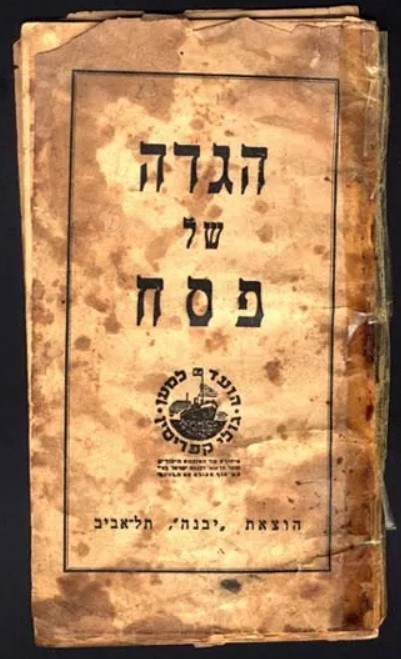
Passover 5674 (1914) – 110 Years Ago
Millions of Jews throughout Europe, who sat peacefully with their families during the two seder nights of Passover 1914, had no idea what was in store for them in the coming summer. In the summer, WWI broke out, which was a calamity for all of Europe, and in truth most of it did not recover from the war and its consequences until WWII arrived, and the terrible Holocaust - that overshadowed its predecessor (WWI) and almost erased its memory from the consciousness of humanity - occured. Cannons thunder on the battlefield during the First World War Indeed, World War II was an unprec... Read more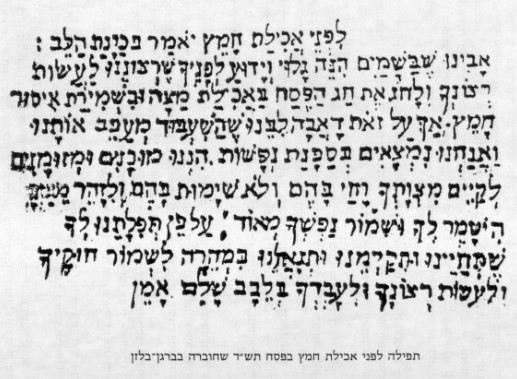
Passover 5704 (1944)
The Last Passover Seder in Auschwitz Close to Passover 5704 (1944), the Germans began to bring thousands of our brethren - the Jews of Slovakia, Hungary, Czechoslovakia, and the areas of Carpatho-Ruthenia - to Auschwitz. The Jews said that the Germans lured and coaxed them. They told them that they were being moved to the Garden of Eden. Jews being unloaded from the cattle cars in the Auschwitz extermination camp. Gestapo soldiers "welcome" them. Close to Passover, the two first crematoriums began to burn day and night. They managed to burn 15,000 people in one day. Here... Read more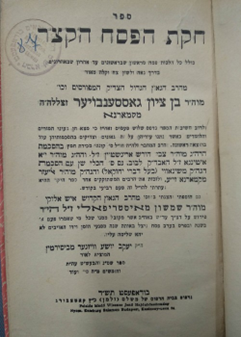
Burnt Postcards and Blossoming Letters
In 5704 (1944), while the cities of Eastern Europe, the great and historical centers of Torah, had mostly already faced extermination or were in the midst of terrible killing sprees, Hungary was still peaceful and its inhabitants lived under an almost normal routine. In the month of Adar 5704, while the Nazi tyrants had already begun to inflict resounding defeats on the Russian front and in other places, the Germans occupied Hungary and within a few months, hundreds of thousands of Jews were sent to Auschwitz. Looking back, it is horrifying to turn the pages of history and observe the c... Read more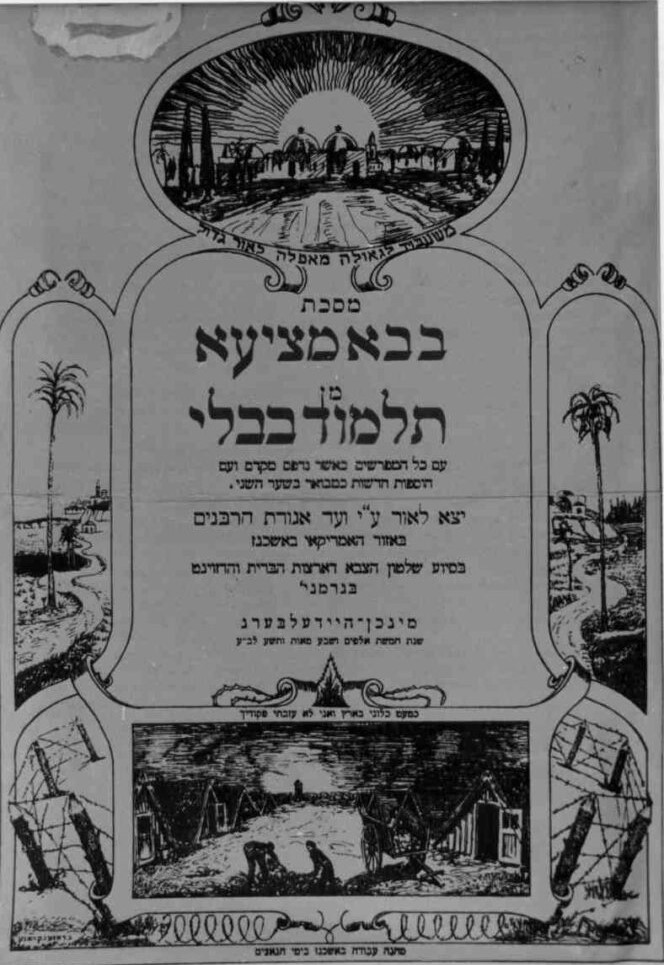
Halacha (Jewish Law) Rules in Favour of Abaye, in the Disputes with the Mnemonic “Yud, Ayin, Lamed; Kuf Gimmel, Mem”
As part of the Daf Yomi program (learning a page of Gemara per day), Tracate Bava Metzia is now being learned. In synagogues, study halls, and Jewish homes worldwide, there are elegant volumes of the well-known and beloved tractate. There are big and small Gemaras, Gemaras with explanations and translations, and Gemaras with summaries and interpretations. In countless synagogues, teachers sit and explain the concepts that are familiar but sometimes difficult to understand. There are also sophisticated phone line systems where you can hear clear and pleasant lessons at the push of a button. It... Read more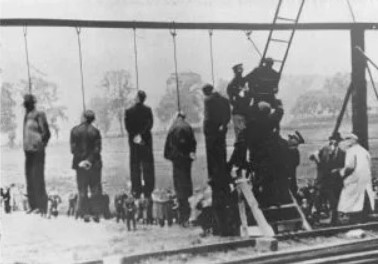
From Under the Heavens, Do Not Forget!
In the Gemara (Megillah 6) it is written on the verse "do not let their plans succeed": This is the Germamia of Edom, if they go forth, they destroy the entire world. Germamia, according to the rabbinic commentators - is Germany. The Gra (short for "Gaon Rav Eliyahu," also known as the Vilna Gaon), already wrote 250 years ago that Germany is Amalek. Therefore, on the days of Purim and the revival of Amalek, we try to wip out the memory of the Nazi Amalek who destroyed the world and consumed a third of our people, women and children, holy and pure people. Even then, during the years o... Read more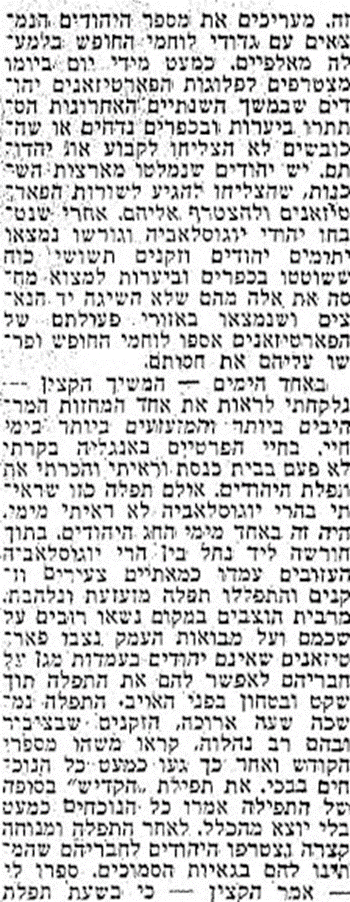
“A Shocking and Passionate Prayer”
A description by a British officer, eighty years ago (HaTzofeh newspaper, March 9, 1944/ Adar 14, 5704). Here is a testimony, published in the HaTzofeh newspaper, of a British army officer who returned to Israel from living with partisans for a long period in Yugoslavia. It was published on the 14th of Adar 5704, eighty years ago, and due to the importance of the document, we present the article here in its entirety (in Hebrew) and will then explain the main points. Thousands of Jews, among them exhausted refugees who had already been in the forests for two years, joined the organiz... Read more
On This Day, 80 Years Ago II
Horrific news published in the press Along with the announcements of the occupation by the Red Army, at the end of the winter 5704 (March 1944), beginning with a series of brilliant victories on the battlefield, the horrible news about the extermination of the Jews of Europe on an unbelievable scale began to be published. Here is one report: "Moskow. The Red Army did not find a single Jewish soul in the cities of Volynia, Podolia, and Galicia, which they conquered in recent days. In all the cities in the 3 regions, there were robust Jewish populations before the German conquest" ... Read more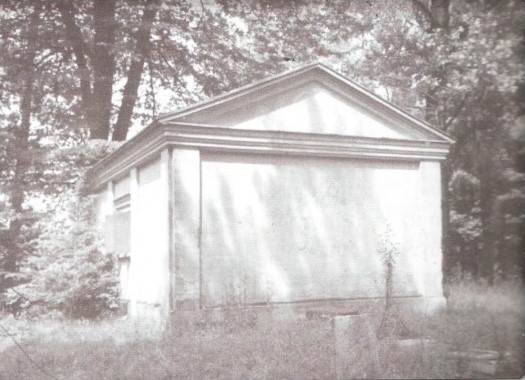
“The Righteous Rabbi Elimelech of Lizhensk Saved Me from Death in Plaszow”
In honour of Adar 21, the yahrzeit (anniversary of death) of the righteous Rabbi Elimelech of Lizhensk z"l By: Yaakov Rosenfeld, Ganzach Kiddush Hashem I am Yosef Scheller, from Krakow. Upon the outbreak of the war, I was a young bar mitzvah aged boy. Like many residents of Krakow, and especially young skilled workers, I arrived in 1942 at the infamous Plaszow camp, under the command of the murderer, Amon Goeth, may his name be blotted out. A view of the Plaszow camp next to Krakow, Poland One day, I fell seriously ill and and I was sent, due to the right connections, to... Read more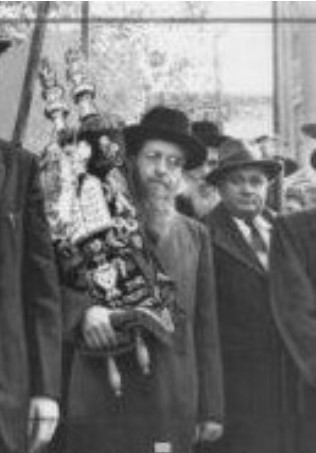
The Genius Rabbi Menashe Frankel Z”L
The last rabbi of Lizhensk On the 14th of Adar I 5725 (1965), 59 years ago, the heart of one of the great Holocaust survivor rabbis stopped. For some reason, he has been forgotten and his name is almost unknown, but his good deeds are recorded before the throne of honour, "for there is no forgetting before the throne of Your honour and there is nothing hidden from Your eyes." Rabbi Menashe Frankel was born in 5663 (1903) in Jadlowa, Galicia, between Debica and Tarnow to the genius and righteous Rabbi Shlomo Zalman, son of the known righteous man and miracle performer, Rabbi Avraham Fran... Read more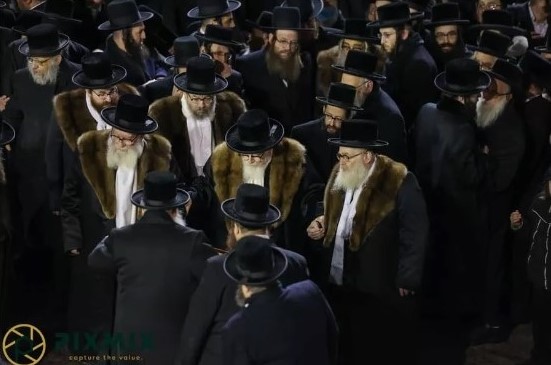
The Candy that Saved the Baby
In Memory of the Skverer Rebbetzin z"l The Skverer Rebbetzin's funeral The fugitives silently made their way in the smuggler's footsteps, under the cover of darkness. Young parents, a baby, and a heartless gentile smuggler who was only in it for the money… The smuggler knew very well that if they were discovered, they would be killed on the spot and without any justice, so he warned the small group in advance that they would have to hurry. He barely gave them time to breathe. The father, Rabbi Moshe Yehoshua Hager, who later served as the "Yeshuot Moshe," the Vizhnitzer... Read more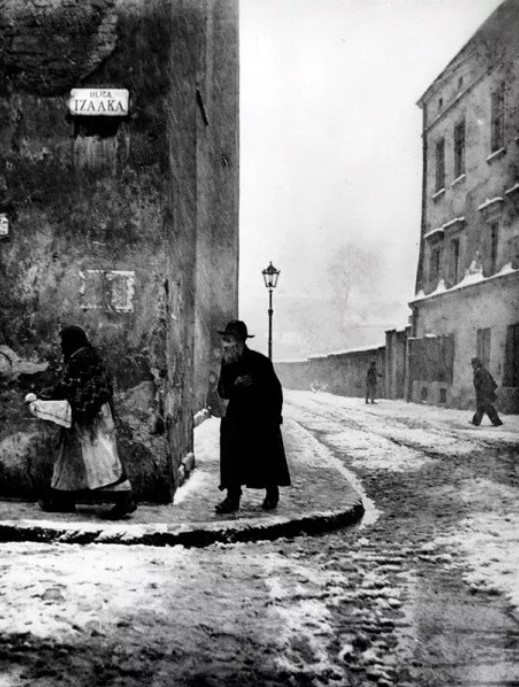
Longings for the City of Krakow
By: Yaakov Rosenfeld Eighty years ago, little by little, the horrible news of what was happening to the Jewish communities in Europe began to reach Israel. As strange as this may seem, the wider world did not know what was going on in Poland during the years when millions of Jews were being killed there. And on that bitter day, when the news of the destruction of the Krakow community reached Jerusalem, Rabbi Moshe Mordechai Biderman, the Rebbe of Lelov, fell ill from grief, and he lay confined to his bed with his whole body boiling up with a fever. He lay down and wept bitterly ov... Read more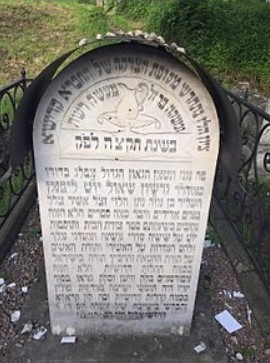
1 Adar A – A Holiday for the Descendants of the Tosfot Yom Tov
Descendants of the Tosfot Yom Tov rabbi commemorate 1 Adar as a day of joy and gratitude to G-d, in accordance with the rabbi's will for future generations. Chassidim pray at the grave of the Tosfot Yom Tov in Krakow Rabbi Gershon Shaul Yom Tov Lipmann Heller, a student of the Maharal rabbi, served in the rabbinate in Prague starting at the age of 18 for 28 years In Cheshvan 5385 (1625), he was appointed as the rabbi of Nikolsburg and on the first day of Adar of the same year, he was crowed as head of the beit din (religious court) of Vienna. In Tevet 5387 (1627), he was chose... Read more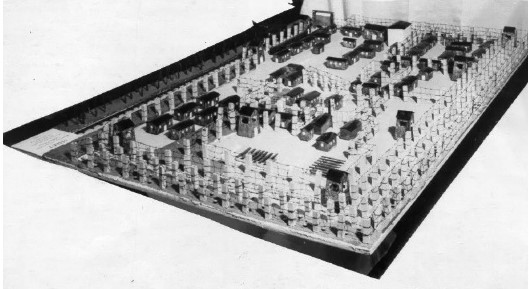
From the Memoirs of a Sobibor Survivor
By: Yaakov Rosenfeld, Ganzach Kiddush Hashem A short time ago, as part of Ganzach Kiddush Hashem's preparations for educational initiatives marking eighty years since the closing of the Sobibor camp, I was in the archives of Ganzach Kiddush Hashem in Bnei Brak looking through books, journals, and testimonies. I read with bated breath Dov Freiberg's testimony "Survivor of Sobibor", and noted to myself several points from his memoirs that I intended to publish in this context. This is the first story. As you read, you will likely become lost in thought. The train station in the ... Read more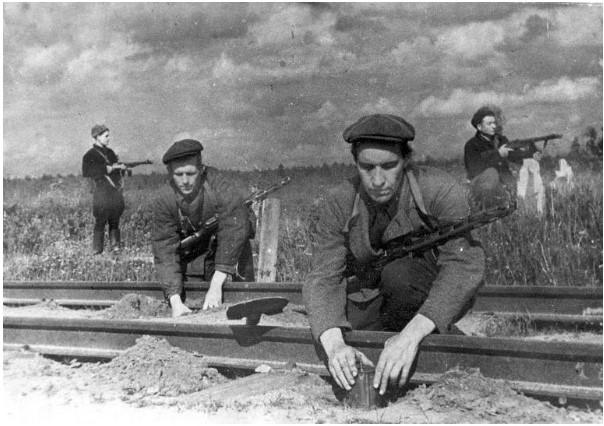
The Miraculous Rescue of the Chassid, Rabbi Menashe Koenig Z”L
Stanislawow Ghetto, Shvat 5704 (1944), 80 years ago By: Yaakov Rosenfeld, Ganzach Kiddush Hashem It was the end of Shvat 5704 (1944). Menashe Koenig and his friends in company 12/3 were forcibly employed in the restoration of the railroads that were destroyed by the Russian bombings and the partisan attacks. Jewish partisans place explosives under a railroad track on which the German trains would pass 250 young Jews from Hungary worked hard as part of this work group. They were tasked with replacing the stone infrastructure and installing new tracks, each one weighing a ton... Read more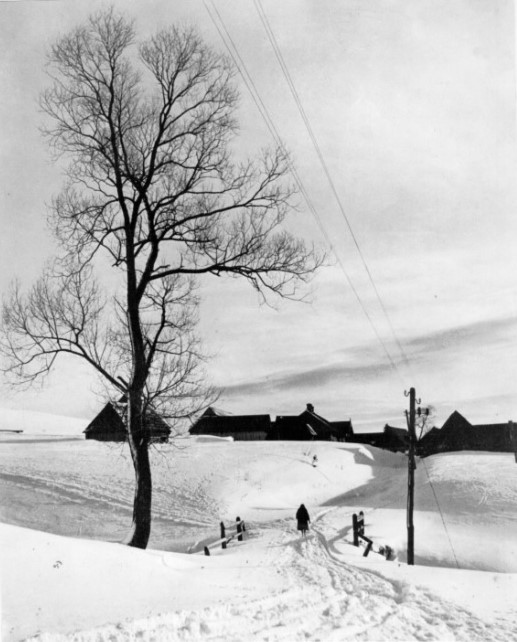
As Long as the Candle Burns
During the cold winter days, Jews remember the old Jewish town, wrapped in a blanket of snow, and there, inside the houses and synagogues, warm and humid, Jews study by the light of the lantern. Today is the anniversary of the passing of Rabbi Yisrael of Salant, the father of the Musar (morals) movement. His name and the name of the small town of Salant evoke a feeling of longing in the heart of every Jew. The Jewish town, where for hundreds of years the life of Torah and musar was bustling, met its bitter end, and there were no survivors or refugees left. According to the records, only on... Read more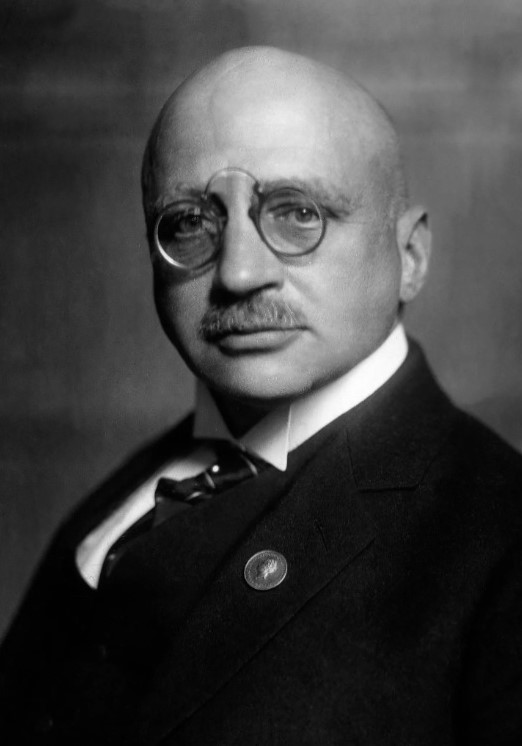
The Tragedy of the German-Jew – A Tragedy of One-Sided Love
90 years since the passing of Fritz Haber: Shvat 13, 5694-Shvat 13, 5784 (Jan. 29, 1934-Jan. 23, 2024) By: Yaakov Rosenfeld This is the tragic story of a converted Jew who was an ardent German patriot for most of his life, and in his old age, with increasing feelings of of disillusionment and piercing regret, died of a heart attack on his way to Israel. Fritz Haber (Wikipedia) Fritz Haber was born in the city of Breslau (Prussia, now Wroclaw, Poland) to parents who were believers and traditionalists to a certain extent. His mother died when he was an infant, and his relationsh... Read more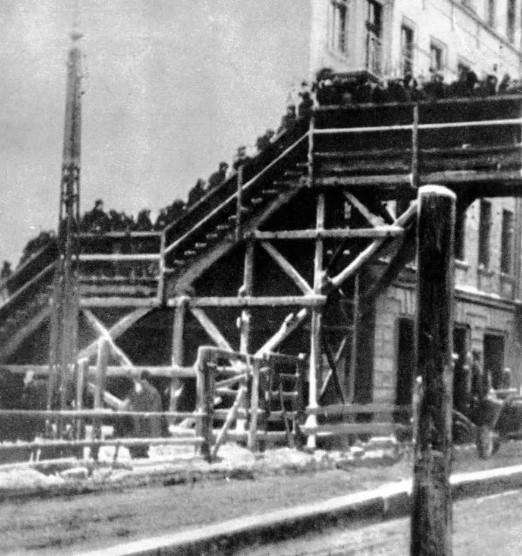
30 Years Since the Passing of the Author, Sarah Ziskind, Survivor of the Lodz Ghetto
By: Yaakov Rosenfeld, Ganzach Kiddush Hashem In her book "HaAtara Sheh'Avda" (The Lost Crown), Sarah describes in first person, the distress and suffering, the hunger, and the poverty that she, her family, and friends faced in the Lodz Ghetto. In the book, I read with bated breath about self-sacrifice for values, even in the horrific conditions of the ghetto, and even in the hell of Auschwitz. The name of the book is derived from the fact that the author's father was a manufacturer of silver "crowns" (adornments) for tallises (prayer shawls), however the book describes in general the cr... Read more
On This Day, 80 Years Ago
A new ghetto in Japan collects "kimcha d'pischa" (charity for Passover) for European Jewry & the Orthodox conference in the U.S. By: Yaakov Rosenfeld. While skimming through the press of exactly eighty years ago, I was exposed to new information that I had not read about elsewhere. The headline in "Der Morgan Journal" (a common American Jewish newspaper) tells about a new ghetto that the Japanese established for European Jewish refugees in Mukden, Manchuria. (Japan opens a new ghetto for Jews in Mukden, Manchuria. Jan. 28th, 1944) In the body of the news article, it is ... Read more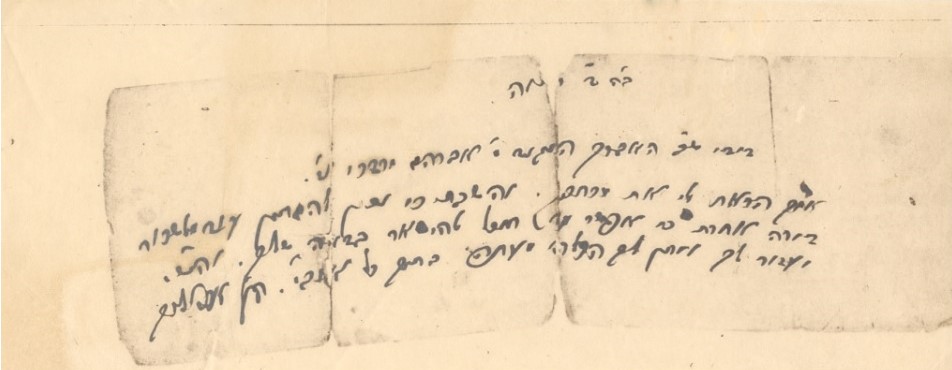
In All Their Trouble, He Did Not Trouble Them (Isaiah 63:9)
120 years since the outbreak of the Russo-Japanese War; 119 years since the passing of the Sfat Emet By: Yaakov Rosenfeld, Ganzach Kiddush Hashem The 5th of Shvat marks the yahrzeit (anniversary of death) of Rabbi Yehuda Aryeh Leib Alter z"l of Ger, known as the Sfat Emet. Handwriting of the Sfat Emet of Ger The Gerrer Rebbe, leader of Polish Jewry and the rabbi and luminary of thousands of chassidim, died in the midst of the Russo-Japanese War, the bloody war that resulted in the death of thousands of Jewish soldiers who had been recruited against their will. The Russo-Jap... Read more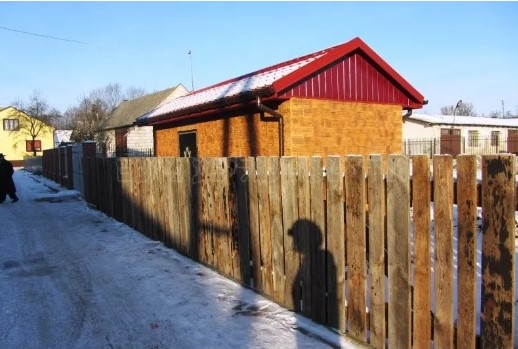
With His Love and With His Compassion, He Redeemed Them (Isaiah 63:9)
Upon the yahrzeit (anniversary of death) of Rabbi David of Lelow. 210 years since his passing. By: Yaakov Rosenfeld, Ganzach Kiddush Hashem The righteous Rabbi David of Lelow, known as an exceptional lover of the Jewish People, used to stop in every village he passed, enter, and ask if there was a Jew there. And if he was answered in the affirmative, he would enter the Jewish home to check on the Jew's well-being, to be moved with him as with a long-lost brother, and to enlighten his heart with faith and trust in G-d, Torah and chassidism. The Jew - who at first did not understand ho... Read more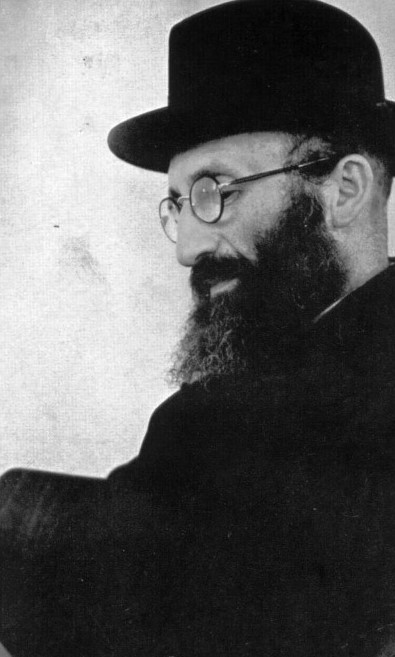
Rabbi Dessler and His Thoughts on the Events of the Holocaust
Seventy years since the passing of the genius chassid, Rabbi Eliyahu Eliezer Dessler, known as the "Michtav M'Eliyahu" (Letter from Eliyahu). By: Rabbi Yaakov Rosenfeld - Ganzach Kiddush Hashem On the 25th of Tevet 5714 (Dec. 30th, 1953), exactly seventy years ago, the soul of Rabbi Eliyahu Eliezer Dessler z"l ascended to Heaven. Rabbi Eliyahu Eliezer Dessler, overseer at the Ponovezh Yeshiva in Bnei Brak Rabbi Dessler, the revered overseer of the Ponevezh Yeshiva, was a guide to thousands, the remnants of the giants of glorious Lithuanian Jewry, whose teachings were compiled ... Read more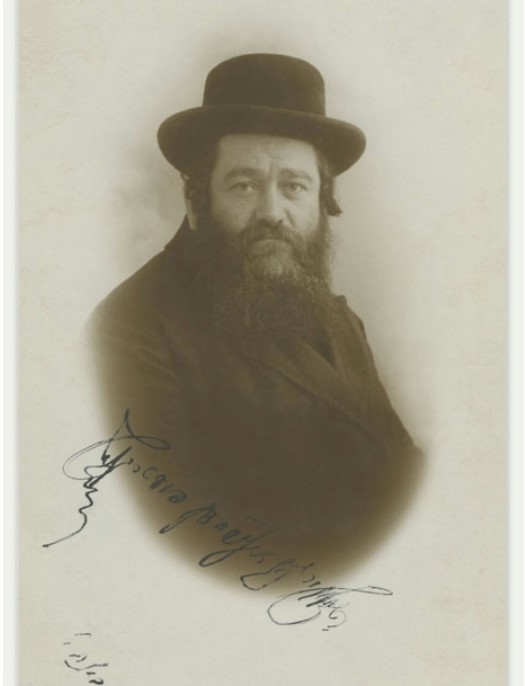
The Sun Set at Noon
90 years since the days of mourning for the passing of one of the great men of his generation, the genius Rabbi Meir Shapira z"l The revered and mighty leader whose vision and power of leadership illuminated the face of the Jewish world in all corners of the world, passed away after a short illness exactly ninety years ago. His untimely departure shook the hearts and hurt Jewish communities everywhere. There are few leaders who have left such a strong mark on the earth as this historical leader, whose influence for nearly a hundred years has been growing, becoming more and more prai... Read more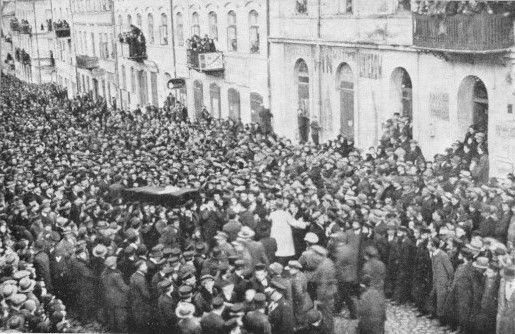
A Wonderous Passing
A description of the passing and the funeral of Rabbi Meir Shapira of Lublin z"l Upon 90 years since his passing By: Rabbi David Avraham Mandelbaum, son of the Rebbe, Rabbi Bentzion Moshe Meir z"l, who was a student of the Chachmei Lublin yeshiva Rabbi Meir Shapira z"l presided over the two largest events that took place in Poland between the two world wars: the cornerstone laying for the Chachmei Lublin yeshiva on Lag BaOmer 5683 (1922), and the inauguration of the yeshiva on 28 Sivan 5690 (1930). The were events in which many thousands of Jews participated, and were led by the Gerr... Read more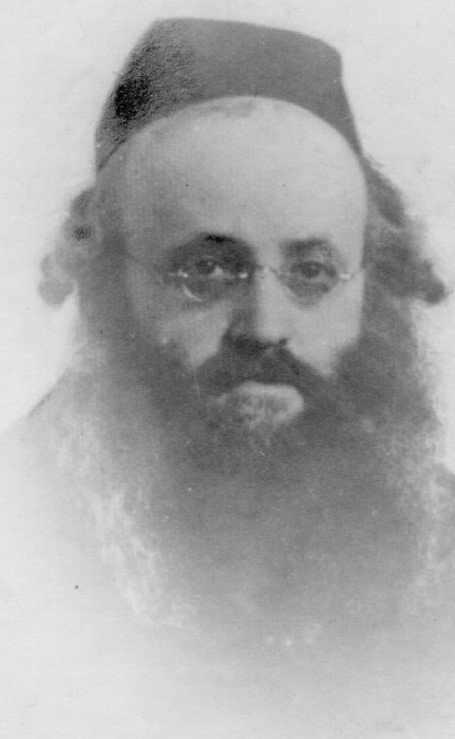
A Life of Self-Sacrifice and Kiddush Hashem
By: Yaakov Rosenfeld, Ganzach Kiddush Hashem In these days, days of sorrow and anxiety, worry and distress, it has been eighty years since the the Rebbe, Rabbi Kalonymous Kalmish Shapira was murdered in sanctification of G-d's name (kiddush Hashem) in the Trawniki camp, 40 kilometres from Lublin. The Piaseczno Rebbe, Rabbi Kalonymous Kalmish Shapira (second from left) with his father-in-law at his side, the Bolchow Rebbe, Rabbi Shlomo Chaim Perlow at a place for healing Eighty years since, the cry of the Holy Rebbe of Piaseczno has been silenced, the terrible cry that echoed in t... Read more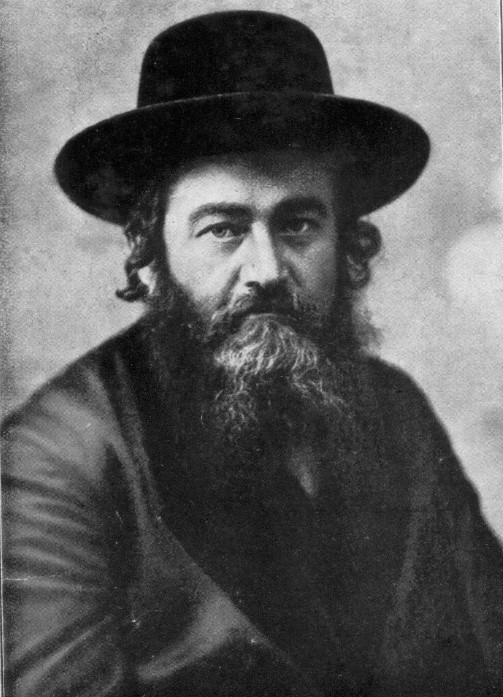
The Joyous World of Rabbi Meir Shapira of Lublin
By: Rabbi David Avraham Mandelbaum, son of the Rebbe, Rabbi Moshe Meir Mandelbaum z"l, who was a student of the Chachmei Lublin Yeshiva A treatise on Rabbi Meir Shapira of Lublin, with seventy aspects, different topics and sections that encompass all parts of his relationship to Judaism and worship of G-d, which touch each and every one of us, because indeed Rabbi Shapira was a man of many talents. Rabbi Meir Shapira of Lublin z"l, the head of the Chachmei Lublin yeshiva, holding a tiny Torah Over the years, I have accumulated many wonderful stories related to the power of music ... Read more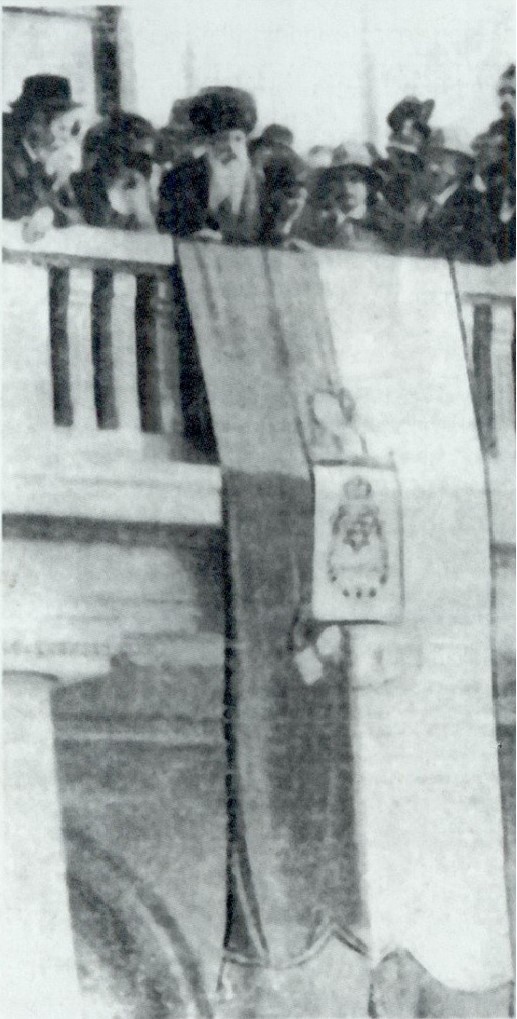
Rabbi Meir Shapira of Lublin z”l and the Gerrer Rebbe, the Imrei Emet z”l
Commemorating 90 years since Rabbi Shapira z"l's passing on Cheshvan 7, 5784 (falling on Oct. 22, 2023) By: Rabbi David Avraham Mandelbaum The Educated and Multi-talented man The Gerrer Rebbe z"l, the Imrei Emet, wrote in a letter (12 Tevet 5686/Dec. 29, 1925) about Rabbi Meir Shapira z"l: "When the Agudah was renewed etc., which is headed by the educated and multi-talented man, the genius rabbi from Piotrkow, may he be for many years." It is not for nothing that the Rebbe chose to describe Rabbi Shapira with the title "educated man of many talents." It is a title that the Rebb... Read more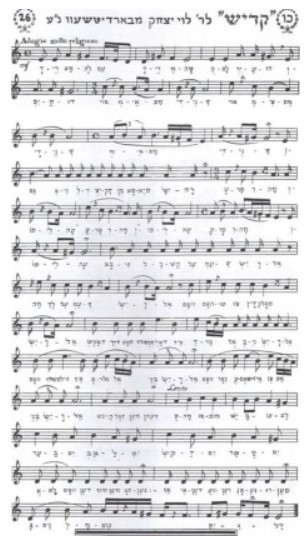
Rabbi Levi Yitzchak of Berditchev’s Kaddish
Commemorating the yahrzeit (anniversary of death) of the "defense attorney of the Jewish People," Rabbi Levi Yitzchak of Berditchev z"l. By: Yaakov Rosenfeld The people of Israel now need the mercy of heaven. Bad news torments the soul and the fear does not rest. Tzadikim (righteous ones) said that the mere mention of the name of Rabbi Levi Yitzchak of Berditchev z"l is an omen for preservation and success. The tomb of Rabbi Levi Yitzchak of Berditchev (Kiyanka) This exhalted tzaddik, whose name raises a feeling of admiration in the hearts of chassidic people and people of fai... Read more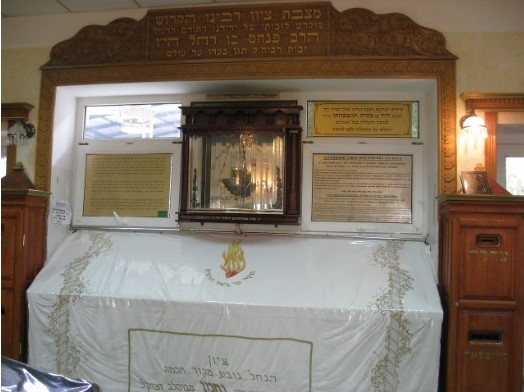
The Breslov Gathering on Rosh Hashana in the Hall of the Chachmei Lublin Yeshiva
By: Rabbi David Avraham Mandelbaum son of the genius chassidic Rabbi Bentzion Moshe Meir z"l, a student of the Chachmei Lublin Yeshiva Among the multitude of miraculous and clearly incomprehensible things that happened around Rabbi Meir Shapira's short and stormy life, there is the inner bond that resonated with the followers of Breslov in general, and the opening of the doors of the yeshiva in Lublin to them for their gathering during the High Holidays in particular. The tomb of Rabbi Nachman of Breslov (courtesy of Wikipedia) We present here descriptions of the Breslov gatherin... Read more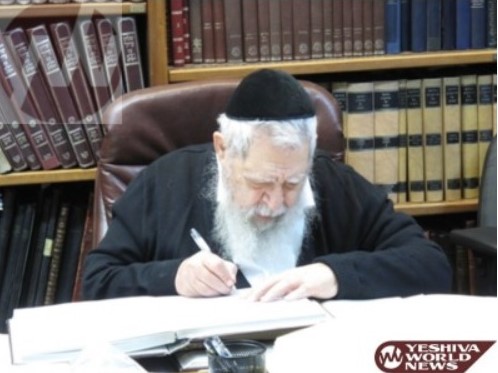
“We Used to Pass through the Old City, on the Way to Porat Yosef, the Arabs would Say to Us, May Their Names Be Erased, ‘Oh Jew! We will Slaughter you Soon!’ They were Awaiting it.”
From the memories of Rabbi Ovadia Yosef z"l in the Land of Israel during the Holocaust era. These chilling matters are presented in light of the animalistic and barbaric acts of murder recently committed by the Arabs, against holy and pure Jews, the Jews of the Gaza envelope, may G-d avenge their blood. Presented on the occasion of the 10th yahrzeit (anniversary of death) of Rabbi Ovadia Yosef z"l, courtesy of the Moreshet Maran organization (with minor editorial changes). "Israel is the close nation to G-d; when they are in trouble, He cannot ignore them, He cannot." "See how it ... Read more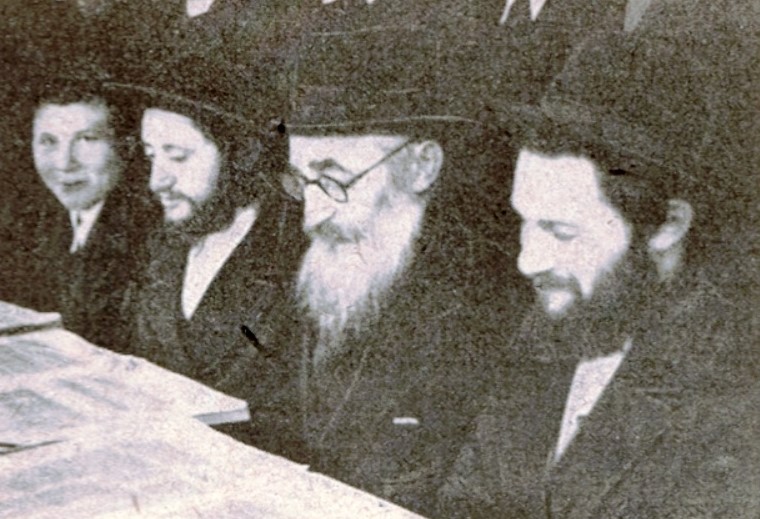
100 Years Since the Announcement of the Daf Yomi Study Program
By: Rabbi David Avraham Mandelbaum Heavenly Enlightenment Our teacher, Rabbi Meir Shapira's life on earth was rich in action and creativity, but one of the most important gifts he bequeathed to the people of Israel is the idea of the daf yomi (a daily page of study from the Gemara). There does not exist in the world a creation in which so many good virtues were tied as as there were to this grand idea, which was a form of heavenly enlightenment for its time and for the future. Rabbi Meir Shapira z"l Some saw the main virtue of it as the "love of the Torah" that it propagated i... Read more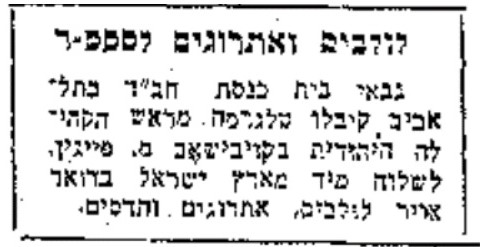
The Chabad Telegram: 80 Years Later
The gabbai (assistant) of the Chabad Lubavitch synagogue in Tel Aviv received a telegram from the head of the Jewish community in Kuybyshev (now Samara, Russia), M. Feigen, requesting to immediatly send lulavs (palm fronds), etrogs (citrons), and hadasim (myrtle) by air mail This news, published on the eve of Sukkot in the year 5704 (1943) in the "Davar" newspaper, made the writer Natan Alterman very emotional, and he sat down to write a poem. And before the poem, a little background on the period and the poet. It was the year 5704 (1943). The world war was raging and the Nazi bl... Read more
“Like They Burned Everything that was Dear to Me and My World in the Crematorium of Auschwitz”
The author Yechiel Dinur, Sosnowiec - Tel Aviv Among the few Holocaust survivors of Sosnowiec, was the well-known writer who became famous at the Eichmann trial, Yechiel Dinur (whose original surname was Feiner). Yechiel chose a very meaningful pen name for himself: "K. Zetnik", derived from "KZ", the administrative abbreviation accepted by the Nazis for Konzentrationslager, meaning "concentration camp." Not many people know that Yechiel Feiner was an exceptional Torah scholar, one of the best students of the Chachmei Lublin yeshiva, and who was among the few elite students who was t... Read more
The Genius Rabbi Shlomo Zev Zweigenhaft Z”L
Rabbi Shlomo Zev Zwiegenhaft z"l, the son-in-law of the Genius of Sosnowiec, served prewar as the head shochet (ritual slaughterer) in many communities all over Poland. His father, like his grandfather and his great-grandfather, served for generations as shochets who received the slaughtering tradition from generation to generation, and the righteous of the generations strove to eat from the animals that they slaughtered. Rabbi Shlomo Zev was born in the city of Sosnowiec in the year 5676 (1915) to his father, the genius Rabbi Moshe Chaim, a student of the Avnei Nezer rabbi. As ... Read more
The Genius of Sosnowiec
Rabbi Shlomo Sztencl was a young and wonderful genius who was plucked from the world in his youth. At first he served as the rabbi of the town of Czeladz, which is close to Sosnowiec (and according to what is stated in the Yizkor book of Sosnowiec, about two thousand Jews lived in this town, most of them Radomsk or Sochaczew chassidim). About his leaving the rabbinate of this city and returning to Sosnowiec, a magnanimous story is told, "Let this be written for the last generation": The shaking hand of the butcher One day, claims began to surface about deficiencies in the butcher's ... Read more
Rabbi Yeshayahu Englard – Poland
Rabbi of Sosnowiec Rabbi Yeshayahu Englard was born in the village of Strzemieszyce, at the border between Russia and Poland. He studied with his father-in-law, the Rebbe of Krimilov, Rabbi Natan HaCohen Rabinowitz and the son of the Baal Chessed L'Avraham, Rabbi Avraham Yisachar of Radomsk. He was elected by a large majority to be the rabbi of Sosnowiec, one of the largest Polish Jewish communities. Rabbi Englard turned this community into an exemplary charedi (loosely translated as ultra-Orthodox) community, with glorious educational institutions and charitable institutions. He partic... Read more
Figures from the City of Sosnowiec
This past Tisha B'Av marked 80 years since the murder of the Jews of Sosnowiec, one of the cities of the community of Zaglembie - the nickname of Bendin and its environs (The Zaglembie region in southwestern Poland encompassed several settlements where the Jews were concentrated in those days. Bendin was the central city, and the cities around it were Sosnowiec, Piaski, Kasawar, Mielowiec, Grawice, Chenczyn, Pinchow, Chmielnik, Staszow, Władysław, Włoszczówa, Wolbrun, Szczuczyn Zarki, Zabrze, Dombrowa, Strzemieszyce, Olkusz, and Czenstochowa ) Every year on Tisha B'Av, the survivors of ... Read more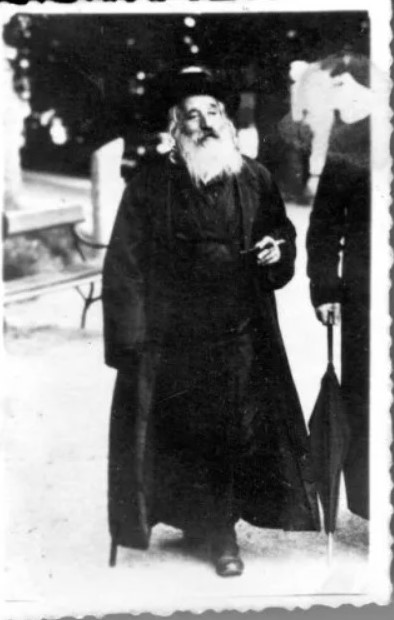
The Holy Czchówer Rebbe, the Son Born to the “Divrei Chaim” of Sanz at an Older Age, May G-d Avenge His Blood
80 Years Since His Murder in Bochnia on Elul 3, 5703 (Sept. 3, 1943) The holy Rabbi Yitzchak Yeshaya was born in 5624 (1864), the son born to Rabbi Chaim Halberstam, the "Divrei Chaim" of Sanz, at an older age. Since the dawn of his childhood, Rabbi Yeshayaleh was known as a great and holy man, and already at the age of 19 he was crowned to serve as the rabbi of the city of Czchow. In 5653 (1893) he lived in Satmar and from there he moved to Krakow. He was considered one of the greatest and most righteous of the generation, a model man, a supreme holy figure, who was great in Tor... Read more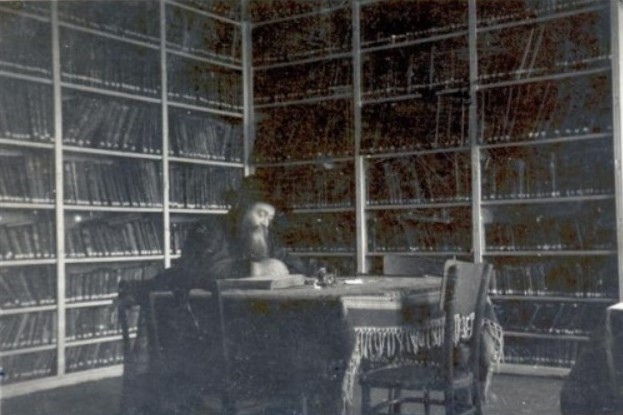
“The Plank of a Ship”
100 years since the establishment of the Daf Yomi study program Exactly one hundred years ago, Rabbi Meir Shapira astonished the entire world when his great idea was proposed at the Agudath Israel congress, the idea of learning the Daf Yomi (a page a day of Gemara) everywhere where Jews lived. The idea, which was received with love and affection all over the world, has accompanied the Jewish People all over the world ever since. There is no known number of the "thousands of thousands of Jews" who have already completed the Shas (six orders of the Mishna) by following this study sche... Read more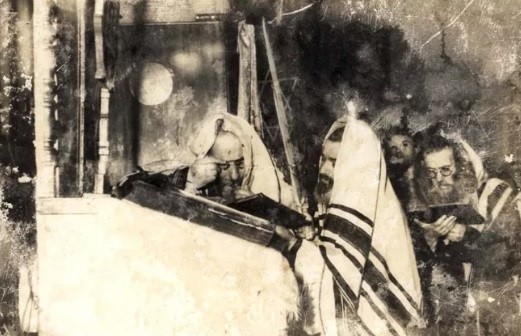
Sukkot March of Those Who Never Yielded
80 years since Sukkot 5704 (1943), Plaszow Camp, in the suburbs of Krakow A sukkah in the Lodz Ghetto This month was the month of the largest killing in our camp. The oppressors demanded sacrifices from us for every holiday and occasion, and despite this, what did the remaining Jews worry about? They thought of tricks on how to observe the mitzvah of sukkah and blessing "Shehechiyanu" (Who kept us alive) during the holiday known as "Zman Simchateinu" (the time of our happiness)! A man holding a lulav (palm frond) in a DP camp On the first night of the holiday, a secret mar... Read more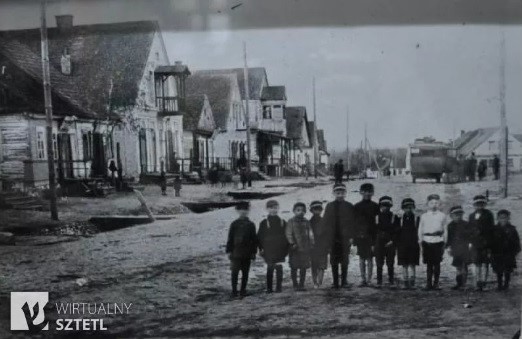
Radin, A Town that Was
The children of Radin, Poland (now Radun, Belarus) - What was their fate? May G-d avenge their blood Today, ninety years ago, with the twilight of the 24th of Elul 5693 (Sept. 15, 1933), heartbroken Jews attended the funeral of the greatest of the generation, Rabbi Yisrael Meir HaCohen Kagan, the "Chafetz Chaim", the tzaddik who left a mark on generations, the genius who enlightened the eyes of Israel in his halachic books, and gave the Jewish People the gift of life, "Who is the man who desires life ('chafetz chaim')…we will guard his tongue from evil..." (Psalms 34:13-4) The Chafe... Read more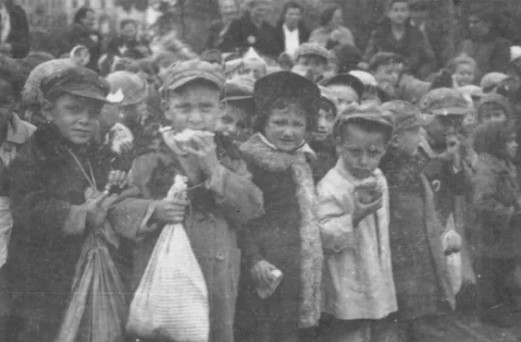
As a Father Has Mercy on His Sons (Psalms 103:13)
Parents and Children during the Holocaust By: Yaakov Rosenfeld "Many books have been compiled, and many works have been written about what happened here, and despite this, the writer or poet who can express the depth of the abyss, the horror of that world has not yet arisen… It may not be possible to describe and express what happened in human language, in the language of words... Is it possible to describe the feelings of a mother or a father or a small child on the umschlagplatz (the gathering point from which Jews were deported)? Or the moment when Dr. Mengele ordered the m... Read more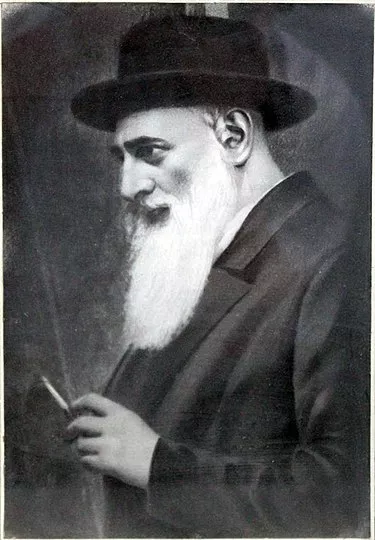
“For the Sake of Martyrs Thrown into the Fire” – The Righteous Man who Risked His Life to Thousands of Transylvanian Refugees
Elul 2 (Falling on Aug. 19th in 2023) marks the yahrzeit (anniversary of death) of the Vizhnitzer Rebbe, Rabbi Eliezer Hager z"l, known as the "Dameshek Eliezer," after his book. Seventy-seven years ago, the great and holy rabbi passed away after a fatal illness that took its toll on him, and he was only 55 years old.. Many hardships befell the Dameshek Eliezer of Vizhnitz, but he was often calm and peaceful, and "the joy of God was his fortress". Most of his days on earth were full of agony and rage, in which broken-hearted Jews required much encouragement and comfort. And if du... Read more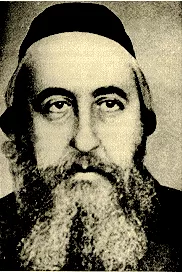
The Genius and Holy Boyaner-Krakow Rebbe – 80 Years Since His Murder in Auschwitz, Elul 3, 5703/Sept. 3, 1943
Rabbi Moshe ("Rabbi Moshenu") Friedman of Boyan-Krakow, may G-d avenge his blood, son of Rabbi Shalom Yosef, grandson of Rabbi Israel of Ruzhin, was born on Purim 5641 (1881) in Hosatyn, Ukraine. Upon his father's passing when he was a toddler, about two years old, Rabbi Moshe Friedman was raised by his grandfather, Rabbi Mordechai Shraga, the Rebbe of Hosatyn, and then his uncle, Rabbi Israel. When he was twenty years old, in the year 5661 (1901), he established his home with his rebbetzin, Miriam, the daughter of Rabbi Menachem Nachum of Boyan, and they moved there. There, he continued t... Read more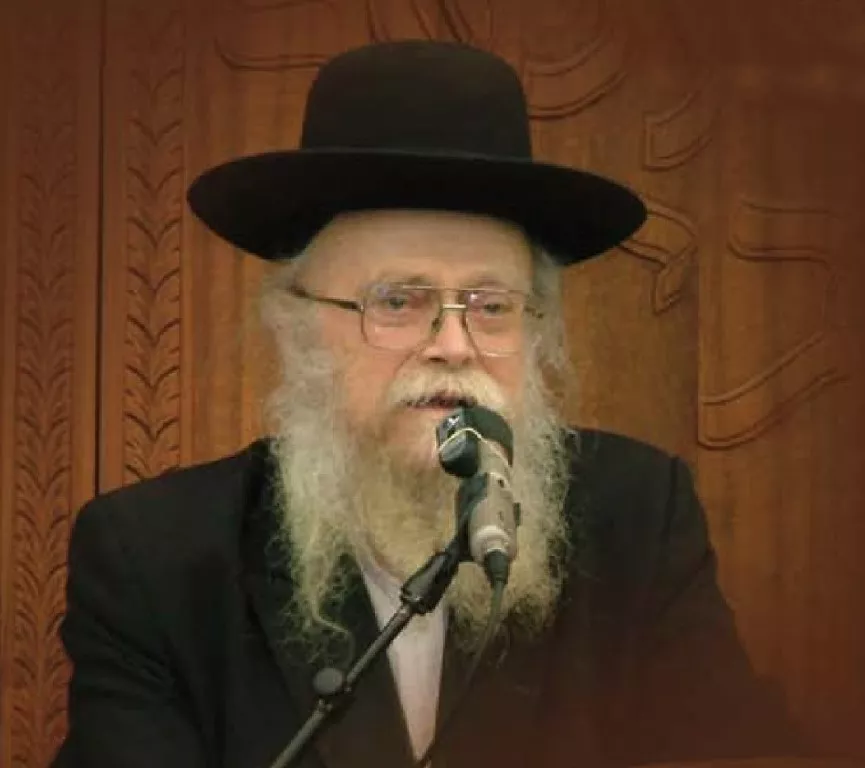
“The Tehran Children” – 80 Years since their Immigration to Israel
Part 2: Pinihaleh Schreiber's (later Rabbi Pinchas Schreiber, the rabbi of Ashdod) path of agony By: Rabbi Yaakov Rosenfeld, Ganzach Kiddush Hashem On Shvat 18, 5691 (February 1931), Pinchas was born to Yisrael Bunim and Tziporah in Jaroslaw, a large city filled with wise men and scribes. Rabbi Pinchas Schreiber z"l His father was a great genius, and already in Pinchas's infancy his father would meditate with him for long hours on the Torah "behind the stove" (the place where the beggars sat) in the synagogue, which can be seen in the remains of the city. As a child, his ... Read more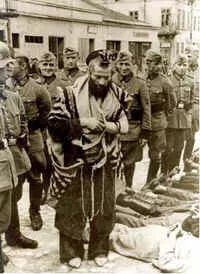
“For these Things I Weep, My Eyes Shed Tears” (Lamentations 1:17)
On Tisha B'Av Jews mourn the destruction; Sitting on the ground, silent, and pondering the recent and distant history. Rivers of blood rise in front of their eyes, and their tears flow unceasingly. On Tisha B'Av, Jews remember the contemporary Holocaust, the one in which hundreds of thousands of its survivors are still alive, the one whose results, or rather its records, are still etched in the nation's soul. Tisha B'av is a day of thoughts and reflections, a day of national mourning. Millions of horror stories took place during the Holocaust, but the horrors of the Holocaust are not... Read more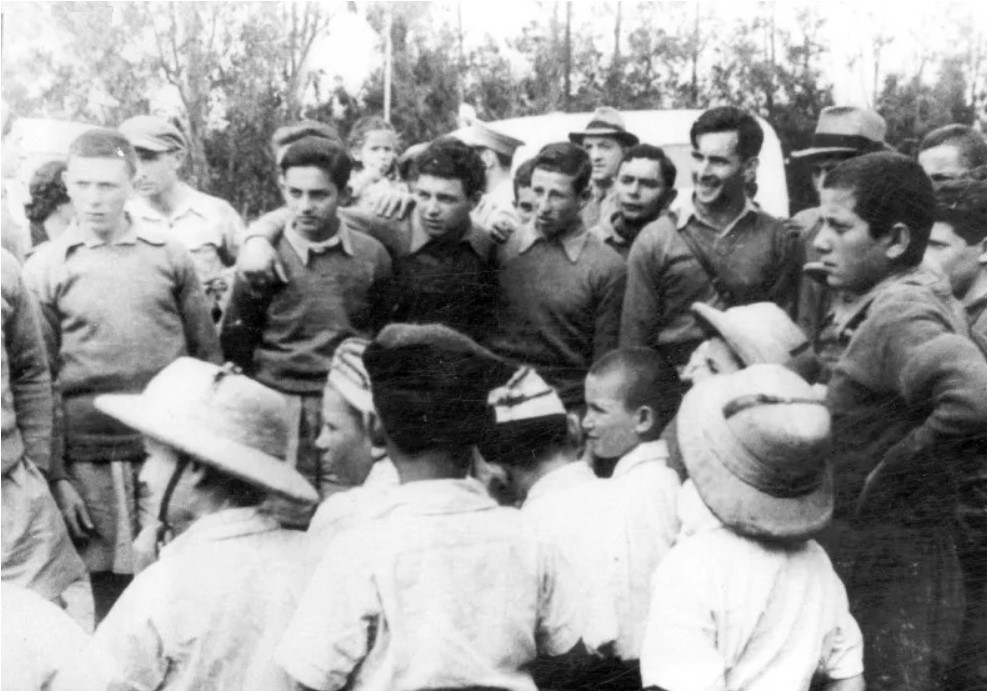
5703-5783 (1943-2003) – Eighty Years Since the Aliya of the Tehran Children
Ganzach Kiddush Hashem's special project - A series of essays, articles, memories, and diary excerpts First essay in the series - The memories of the Pnei Menachem, the Gerrer Rebbe, from the time he spent in the Ponevezh Home for the Elderly, Tamuz-Av 5703 (Summer 1943), in the presence of the Ponevezher Rebbe and the Tehran Children. With thanks to HaMevaser newspaper and the writer Rabbi Yekutiel Yehuda Genzler for the quality essay. The Rabbi's Son It was in the summer months of the year 5703 (1943), and our Rebbe, the Pnei Menachem, was then a young man about the age of 17. I... Read more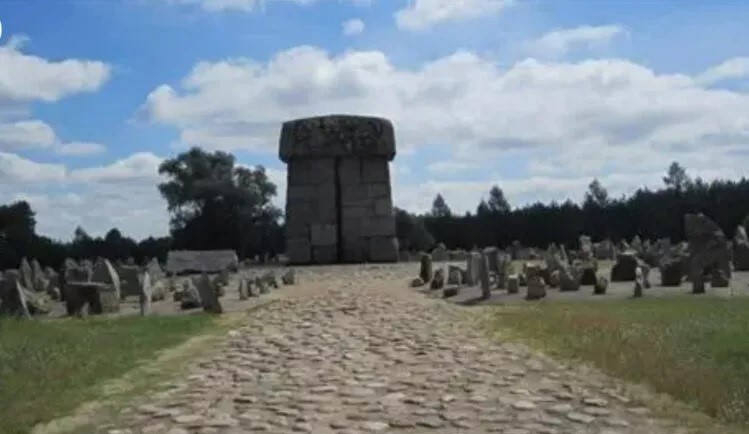
Treblinka: 80 Years Since the Daring Uprising and the Liquidation of the Camp, Av 1, 5703/August 2, 1943
Contents: A) On the Way to Treblinka - Ani Maamim (I Believe) B) "He Murdered and also Inherited" - The German Precision Reflected in the Looting of Victims' Property and Belongings, until the Very Last One C) The "Synagogue" D) "In a Fit of Rage" - A Description of the Uprising by the Survivors On the Way to Treblinka - Ani Maamin (I Believe) The voice of Azriel David Fastag was the talk of the whole of Warsaw. Many flocked to the synagogue where Azriel David and his brothers, also singers, used to pray during the High Holidays. Azriel David would pass in front of the ark ... Read more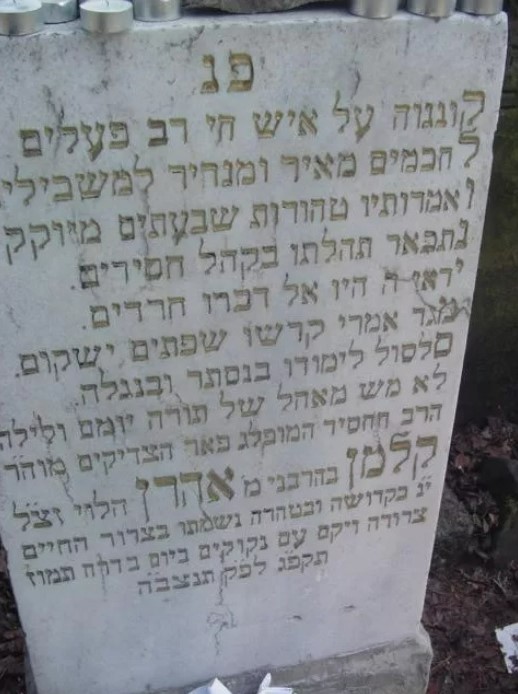
The Maor VaShemesh of Krakow and Galicia
The Maor VaShemesh, 200 Years Since His Passing, 1 Tamuz 5583 (10 June 1823) By: Yaakov Rosenfeld, Ganzach Kiddush Hashem For 120 years, the grave of the Maor VaShemesh was a place of glory for Krakow Jewry. From the time he passed away on 1 Tamuz 5583, exactly 200 years ago, until that bitter day, sometime in the spring of 5703 (1943), when the Nazis destroyed the remains of the Krakow community and brought an end to a magnificent holy community that was a towering light of Torah, worship of G-d, and kindness for more than six hundred years. The Maor VaShemesh, the greatest of R... Read more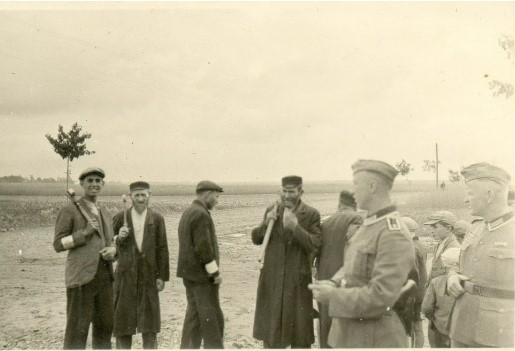
The Last Day of Sivan 5703 (June 1943), 80 Years since the Dismantling of the Belzec Death Camp
We have already written on our Hebrew site about the Belzec camp upon the 80th anniversary of its establishment. Approximately 600,000 Jews were killed in the camp and only one person survived (there was another survivor, Chaim Yitzhak Hirshman, may G-d avenge his blood, but he was killed at the end of the war on the day he began to give his testimony about his experiences in the camp). When the camp was in the process of shutting down, several hundred of the surviving prisoners were forced to work intensively in destroying the evidence and were then taken to Sobibor where they were brutal... Read more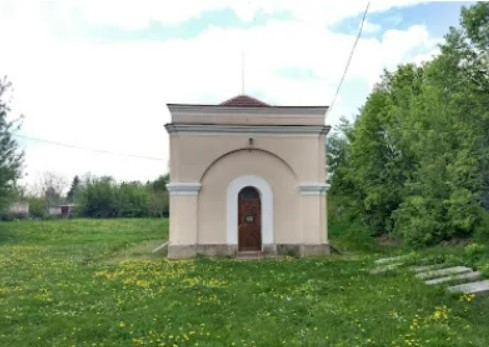
Mlynow on the Banks of the Ikva River
By: Yaakov Rosenfeld, Ganzach Kiddush Hashem The yahrzeit (anniversary of death) of the Karliner Rebbe, Rabbi Aharon II (Sivan 17, 5632/June 23, 1872, 151 years ago) is the time to remember the city of Mlynow, a Jewish city that was destroyed and almost no survivors remained. The Beit Aharon, as he was known, was on the way to his granddaughter's wedding, and stopped in the city of Mlynow. Suddenly, he announced "Oh, my sky is cloudy!" He began to prepare for his passing from the world, said viduy (confessional prayer) with concentration, got on a bed, and thus died out of supreme menta... Read more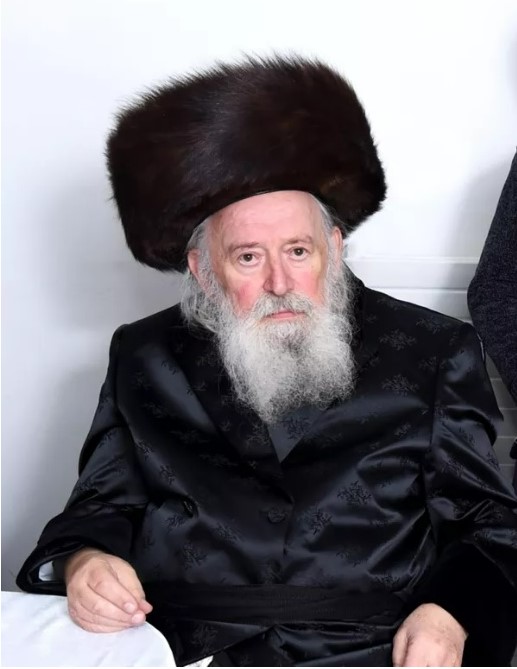
On the Closing of the 30 Initial Days of Mourning for the Czchov-Scinawa Rebbe – Rabbi Chaim Yosef Moshe Kanner z”l, Head of the Talmud Torah “Torat Emet” School
On Nisan 29, 5783 (April 20, 2023) Rabbi Chaim Yosef Moshe Kanner z"l, son of Rabbi Avraham Abish Kanner, the Czchow Rebbe, left this world. By: Devorah Surasky On the eve of the Chanuka 5783 (2022), as part of the project "From Afar You WIll See the Land: Cyprus - The Last Stop" at Ganzach Kiddush Hashem, an interview was held of the Rebbe, with the participation of his son, the Rebbe Rabbi Yissachar Yoel. In his testimony, the Rebbe recounted his family's experiences in the days of rage and in exile in Cyprus, from when he was a seventeen-year-old boy. Pieces of his father's greatness... Read more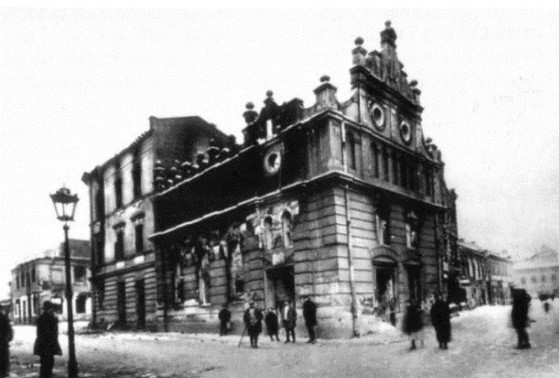
80 Years Since the Liquidation of the Lvov Ghetto
Iyar 17, 5783 (May 18, 2023) By: Yaakov Rosenfeld, Ganzach Kiddush Hashem Few of the 110,000 Lvov Jews survived the war. Lemberg, as it was known during WWII (and now is Lviv, Ukraine), was the largest and most famous city in Galicia, formerly the capital of Western Galicia. Lvov was the third largest Jewish community in Poland after Warsaw and Lodz, and the great leaders of the generation, who were famous and considered as giants, served as rabbis there. It is enough to mention a small number of them, well-known names such as the "Maharam of Lublin," the "Sama," the "Maginei Shlomo," ... Read more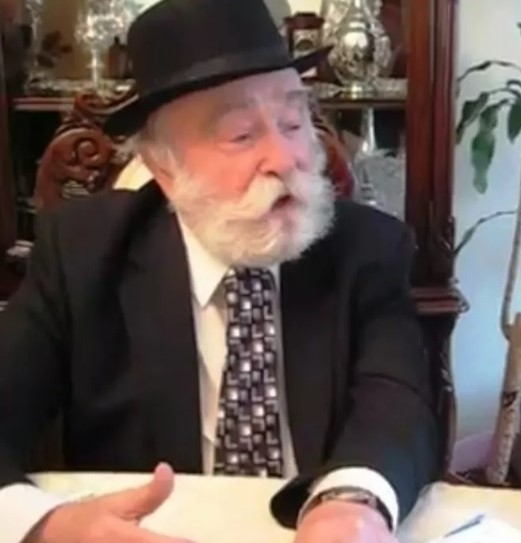
Moshele Der Zinger (Moshele the Singer)
The cantor Moshe Shimon Kraus z"l, on his passing. By: Yaakov Rosenfeld, Ganzach Kiddush Hashem It was with great sadness that we received the news of the passing of the elderly chassid, Rabbi Moshe Shimon Kraus (Moshele) z"l. The cantor, born in Munkacs, survived the war and was widely known as a gifted cantor, a charming man who always had a smile on his face, a smile that did not betray in the slightest what happened to the "prodigy child." The cantor Moshele Kraus was taken out of the depths of the abyss by the Sanz-Klausenberger Rebbe, known as the "Shefa Adam", with his own ha... Read more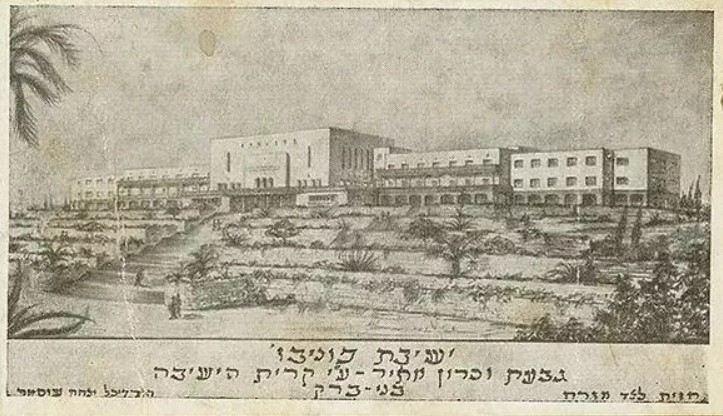
The Orphan Boy from the Town who was the Glory of the Torah World
By: Yaakov Rosenfeld, Ganzach Kiddush Hashem Who hasn't heard of the "Tehran Children"? It is doubtful, though, whether today's youth know what and who this phrase is referring to. Today, the great Rosh Yeshiva (head of a yeshiva), Rabbi Gershon Edelstein z"l, passed away. In his youth, he gave his all to the Tehran Children, who after suffering and upheavals came to Israel with no education and basic knowledge because the terrible war robbed them of their childhood and teenage years. Rabbi Gershon was a Jew of self-sacrifice. His mother, from whom he was orphaned in his youth, ... Read more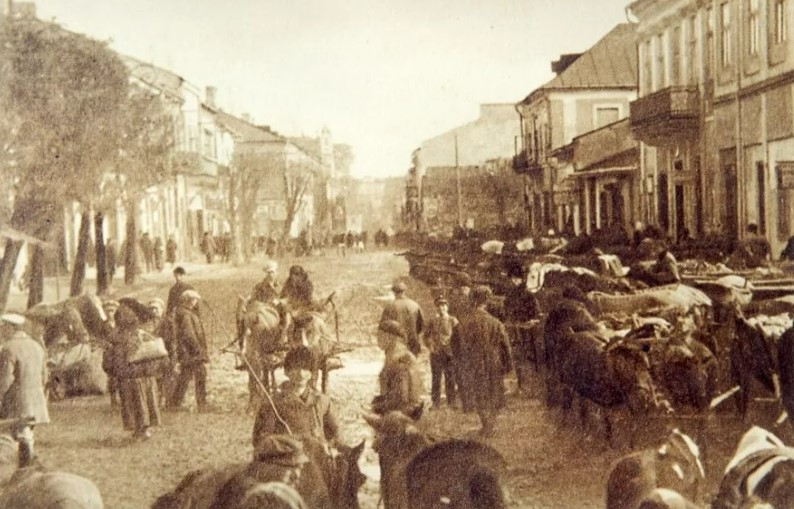
80 Years Since the Liquidation of the Community of Brody
80 years ago, on the day before Lag BaOmer 5703 (1943), the Brody Ghetto was liquidated, and thus came the end of the great and famous city that was affectionately known as "Brod". For hundreds of years the city of Brod lived and bustled, which in its glory days had an absolute Jewish majority (close to ninety percent of the city, before the First World War). In the year 5665 (1905), it had twenty-four Talmud Torah schools, and several yeshivas and charitable organizations that were there for the glory of all of Galicia. Among the charitable organizations that were already active in Brod i... Read more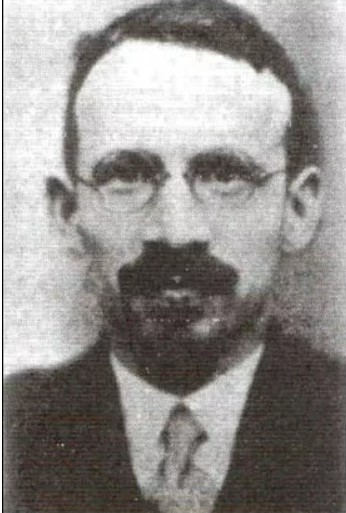
Rabbi Avraham Shlomo Levison z”l
One of the important rabbis of Holland, nicknamed "Rabbi Simcha" (happiness) even though his name was never Simcha… Written in memory of the revered rabbi who perished in the "Lost Train", on the 12th of Iyar 5705 (April 25, 1945). By: Yaakov Rosenfeld, Ganzach Kiddush Hashem Rabbi Avraham Shlomo was born in 5662 (1902). He was a G-d-fearing and exceptional Torah scholar who, in his youth, was already able to teach, and in the year 5695 (1934-5) he was appointed to serve as the rabbi of the city of Leeuwarden and the chief rabbi of the entire district of Friesland. At the same ti... Read more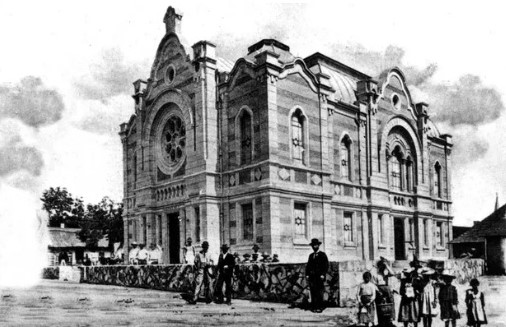
Between Passover and Shavuot in the Ghetto
The period between Passover and Shavuot is a time of trying to better one's character. In this period, Rabbi Akiva's disciples died (in ancient times) for "not showing respect to one another", and that is why they are mourned. During the days of counting the Omer (from Passover to Shavuot), according to what is stated in the holy books, we work gradually on improving our character until Shavuot. Correcting one's character constitutes preparation for receiving the Torah, because the Torah and its mitzvahs have no value without character development: Derech eretz (loosely translated as "good... Read more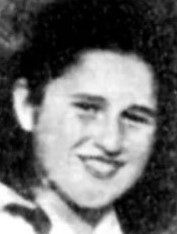
Atara Abramson, May G-d Avenge her Blood
75 years since she died in santification of G-d's Name. Iyar 4, 5708 - Iyar 4, 5783 (May 13, 1948-April 25, 2023) The chassidic rabbi, Rabbi Avigdor Abramson, one of the Chassidim and an influential person in the town of Wielun in the Lodz district of Poland, led a warm chassidic home with his wife, Rivka. The city center of Wielun, Poland, bombed by the German army At the outbreak of the war, he was almost forty years old. In the testimonial page provided by his nephew, it appears that Avigdor died of starvation during the year 1942. Both he, and his wife Rivka, like all ... Read more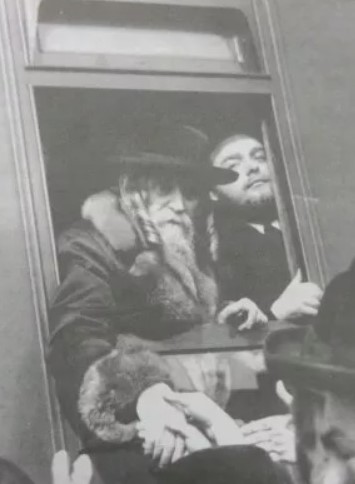
Rabbi Shem Kleinberg, May G-d Avenge His Blood
80 Years Since He was Murdered in Sanctification of G-d's Name Rabbi Shem Kleinberg was righteous and holy. "The righteous one is the foundation of the universe" (Proverbs 10:25); he was a kabbalist, accepted by the great men of the generation, who appreciated him and his opinions. His Story: His father was the grandson of Rabbi Yitzchak Isaac of Komarno, who was a "Sar Beit HaZohar" (well versed in the kabbalistic book of Zohar). His mother was the daughter of Rabbi Moshe Rotenberg, of Skola, also a rebbe of Komarno descent. His rare name, Shem, was given according to the instr... Read more